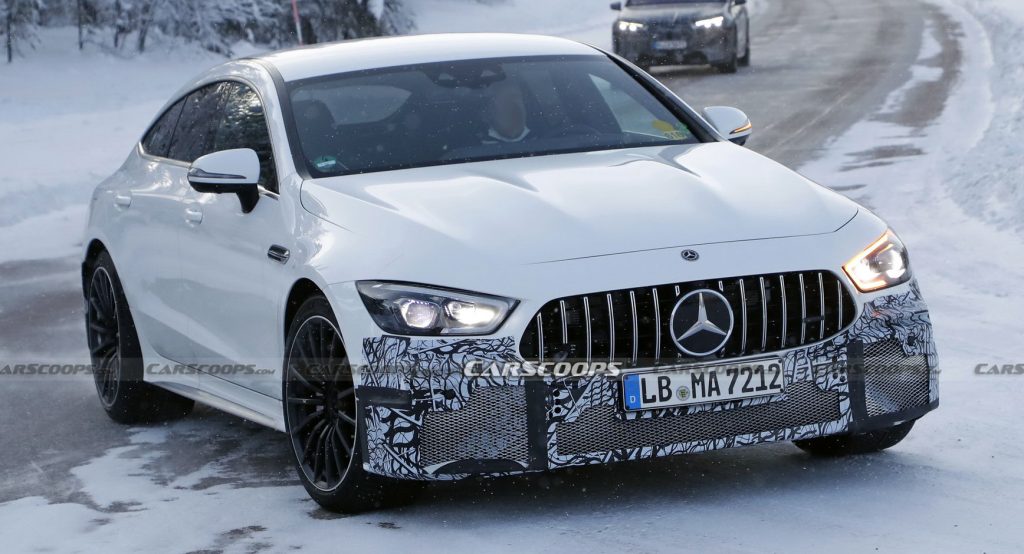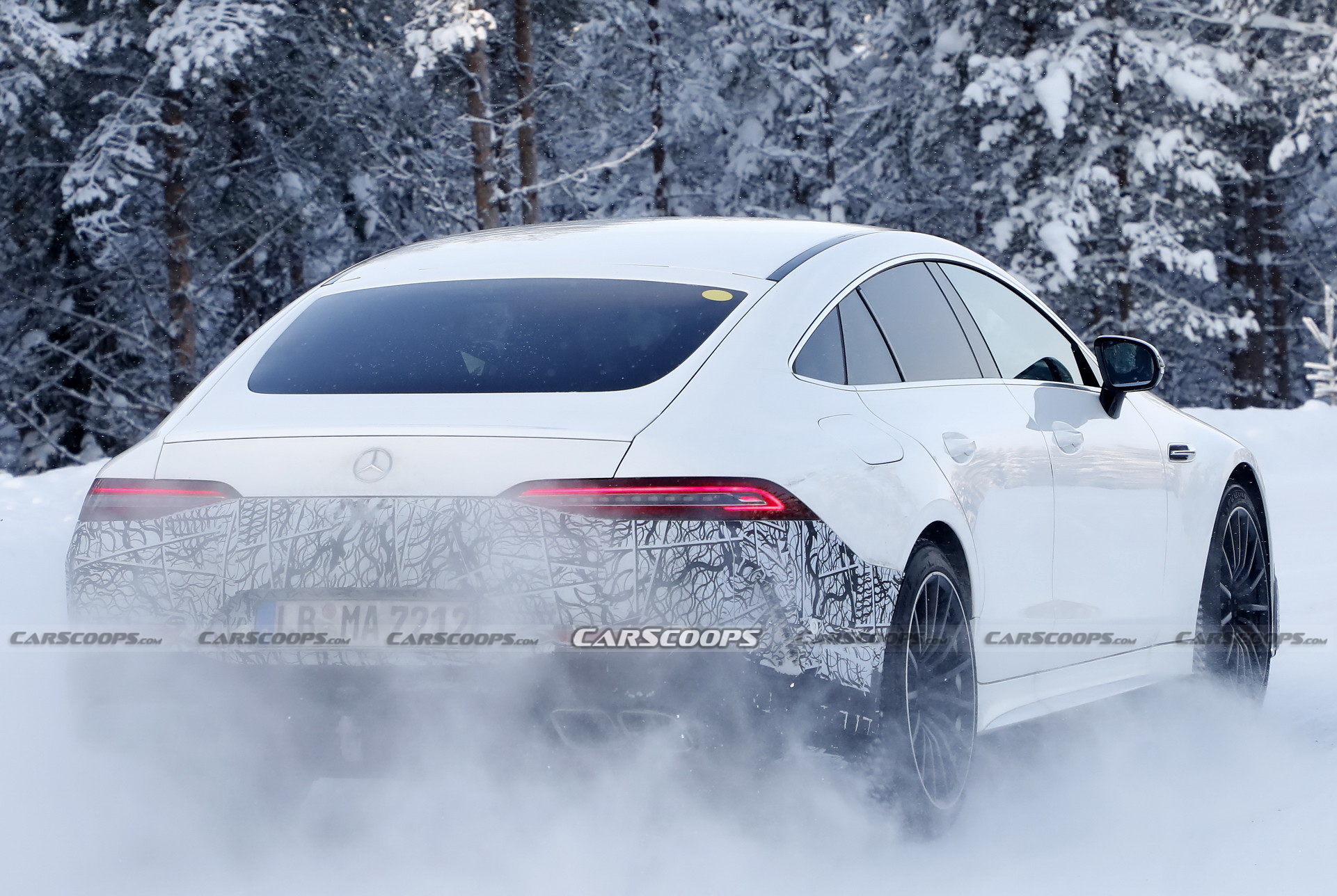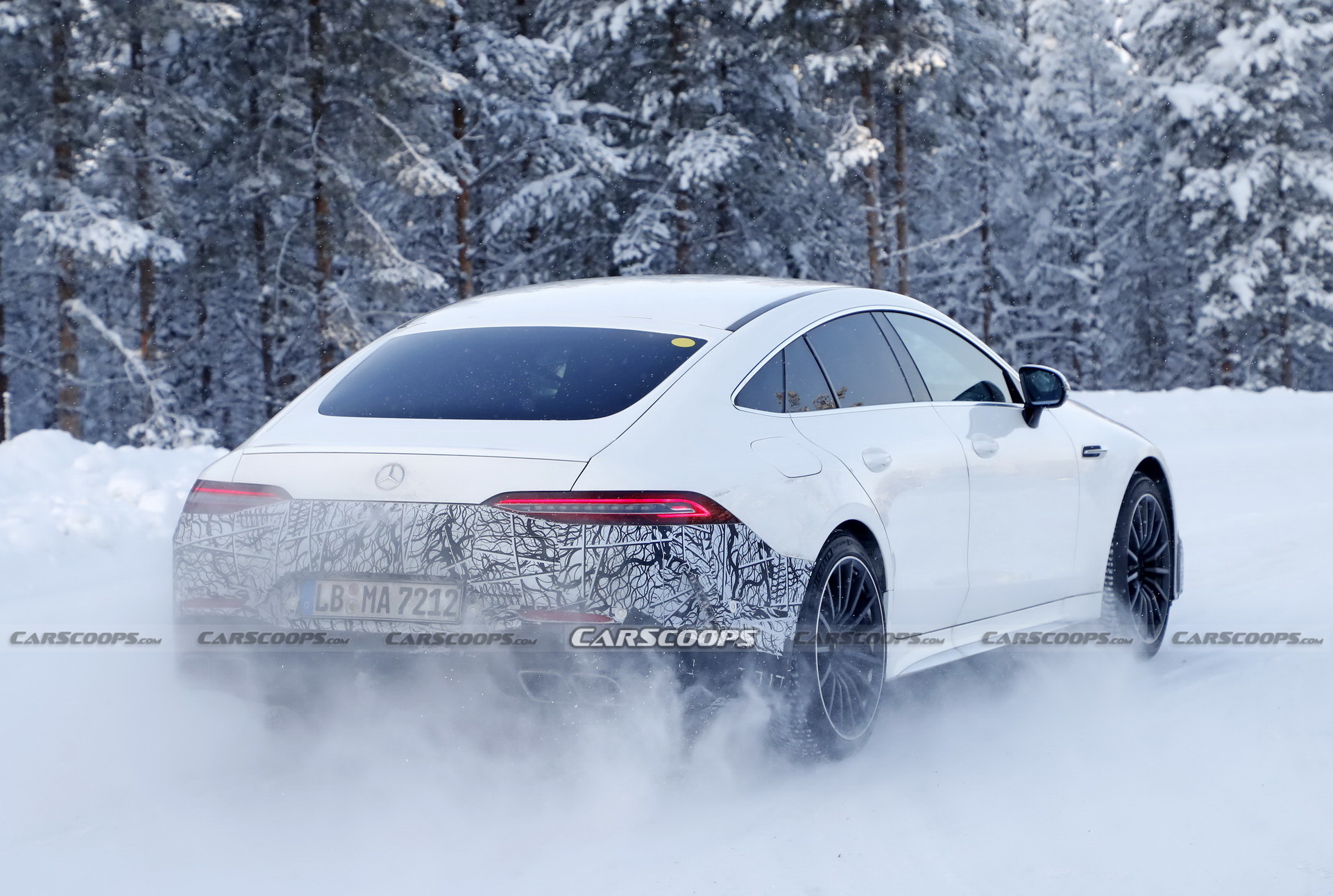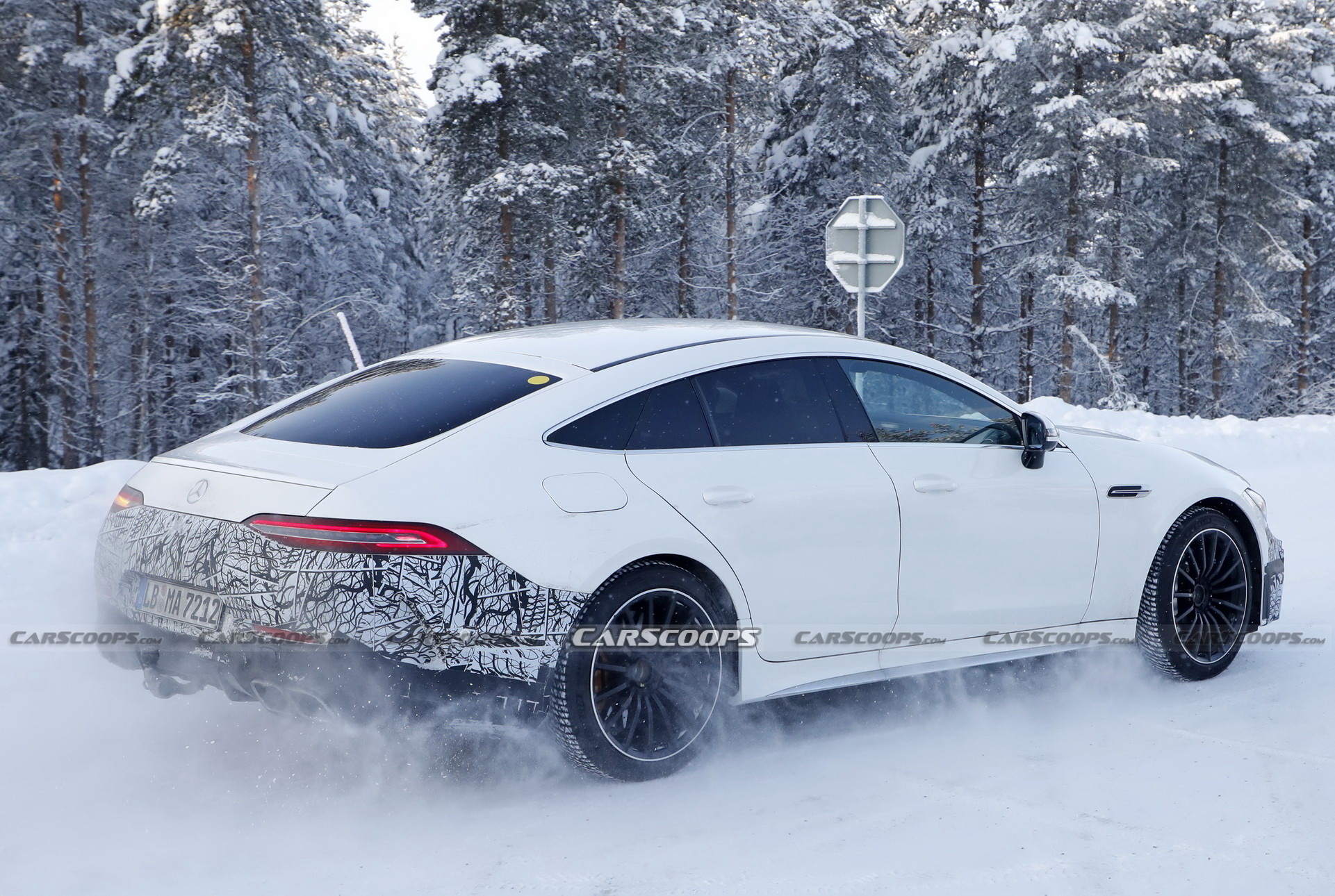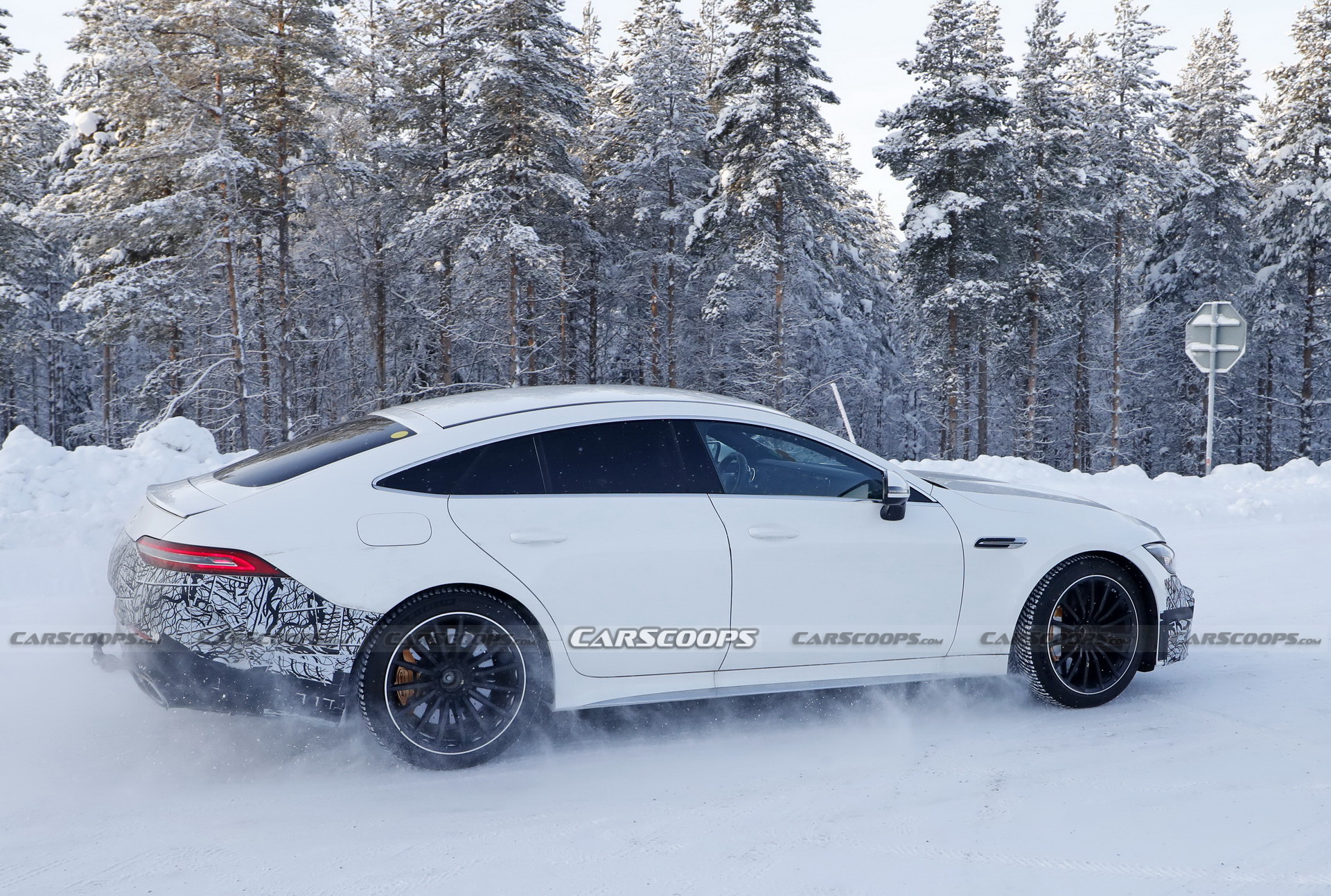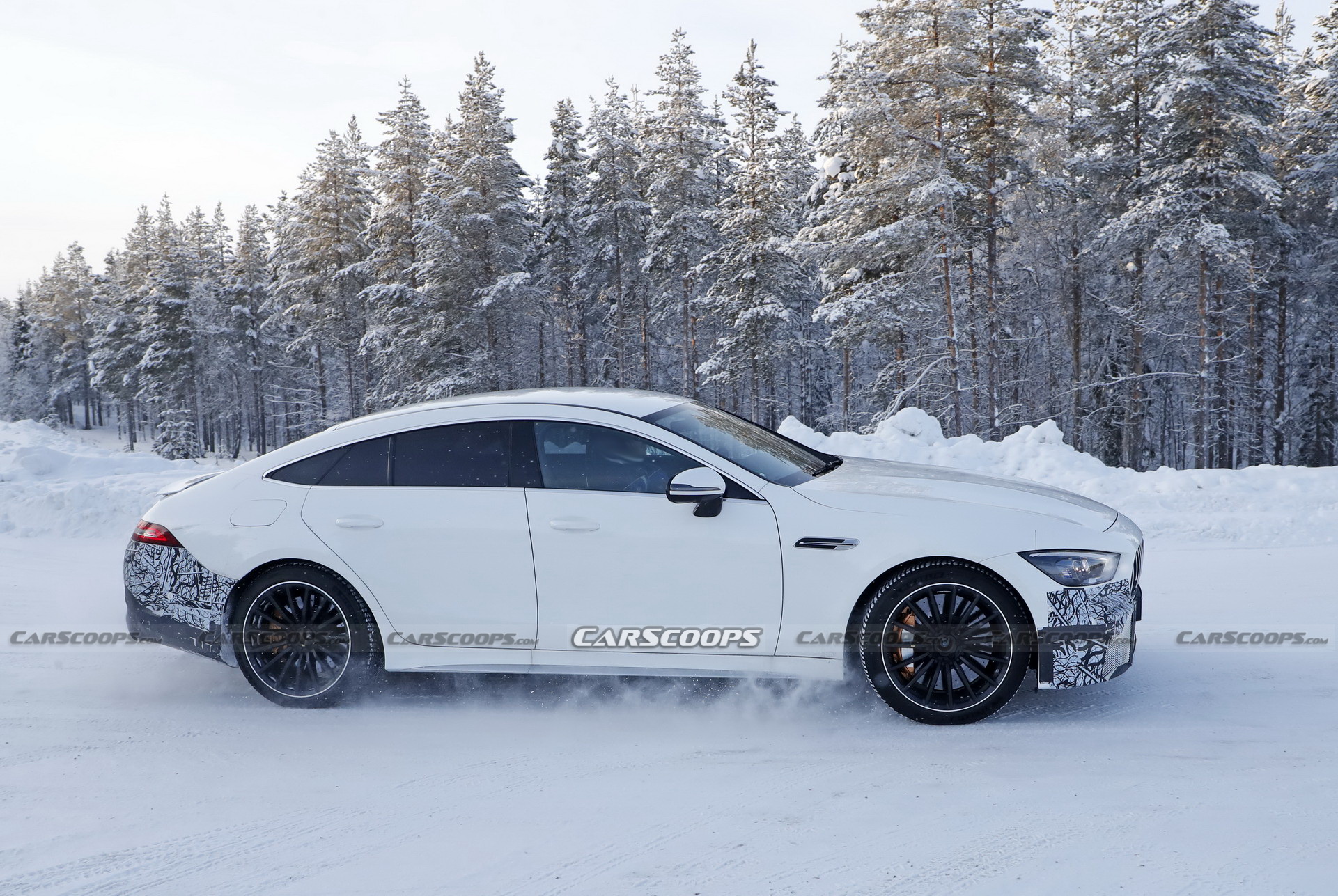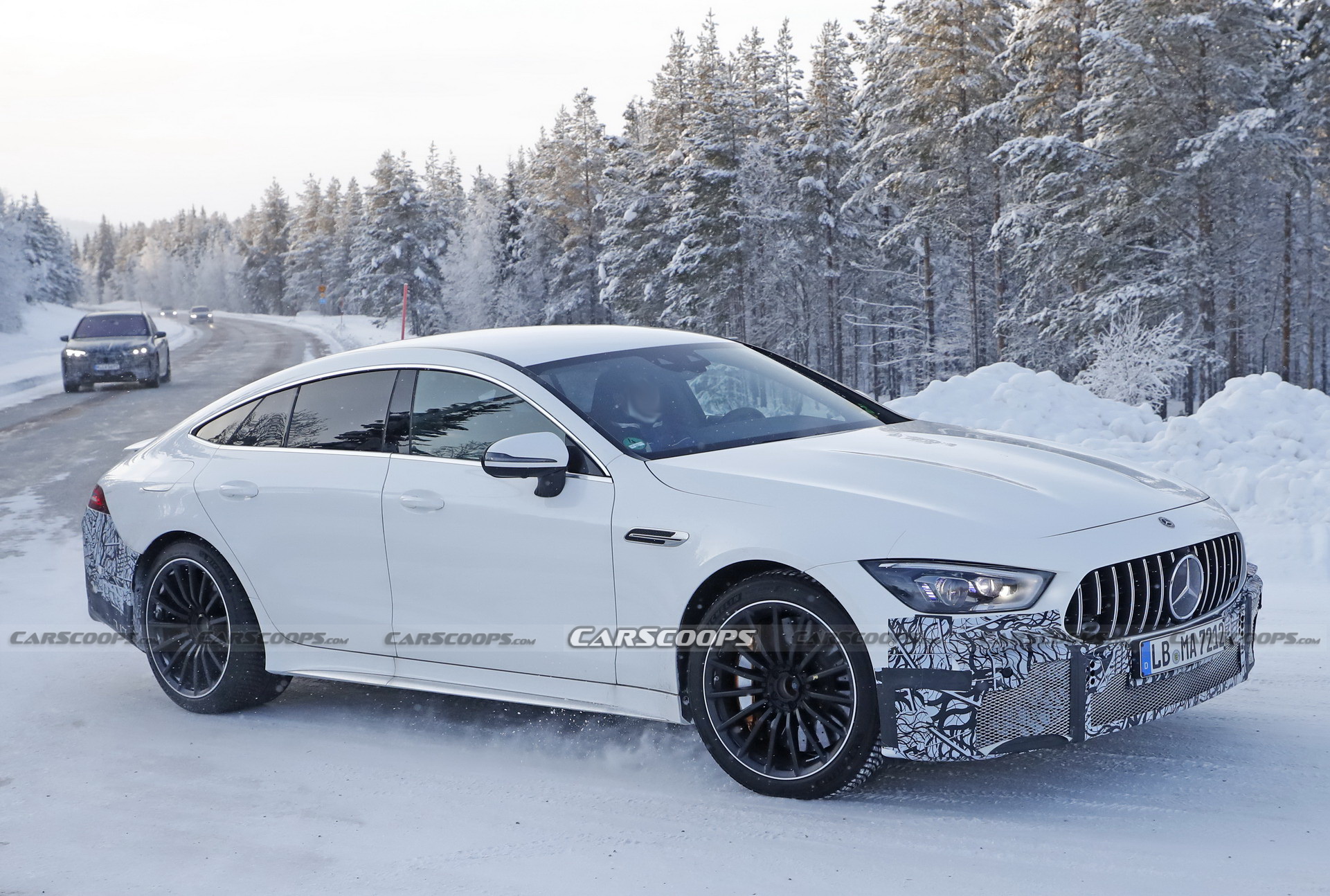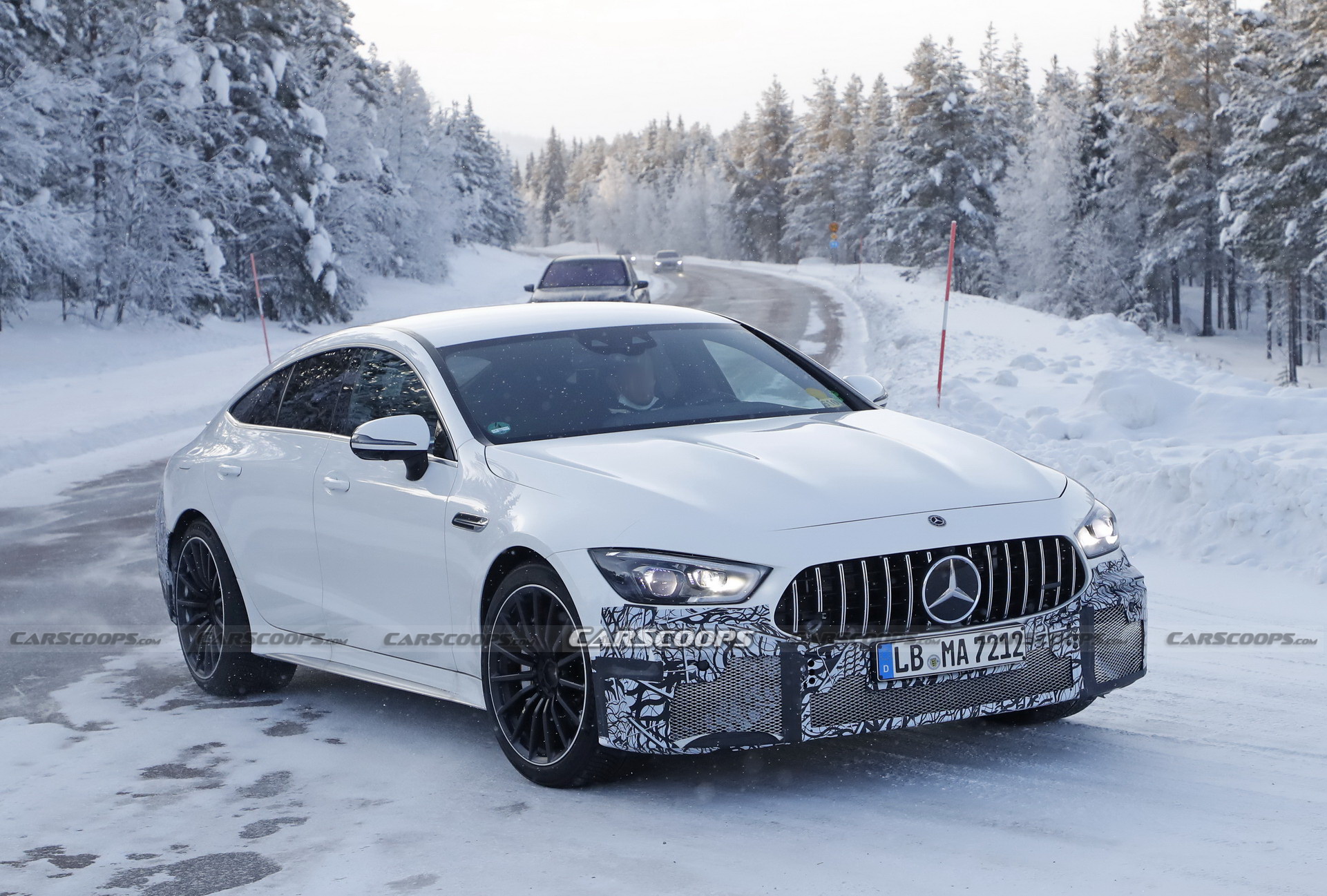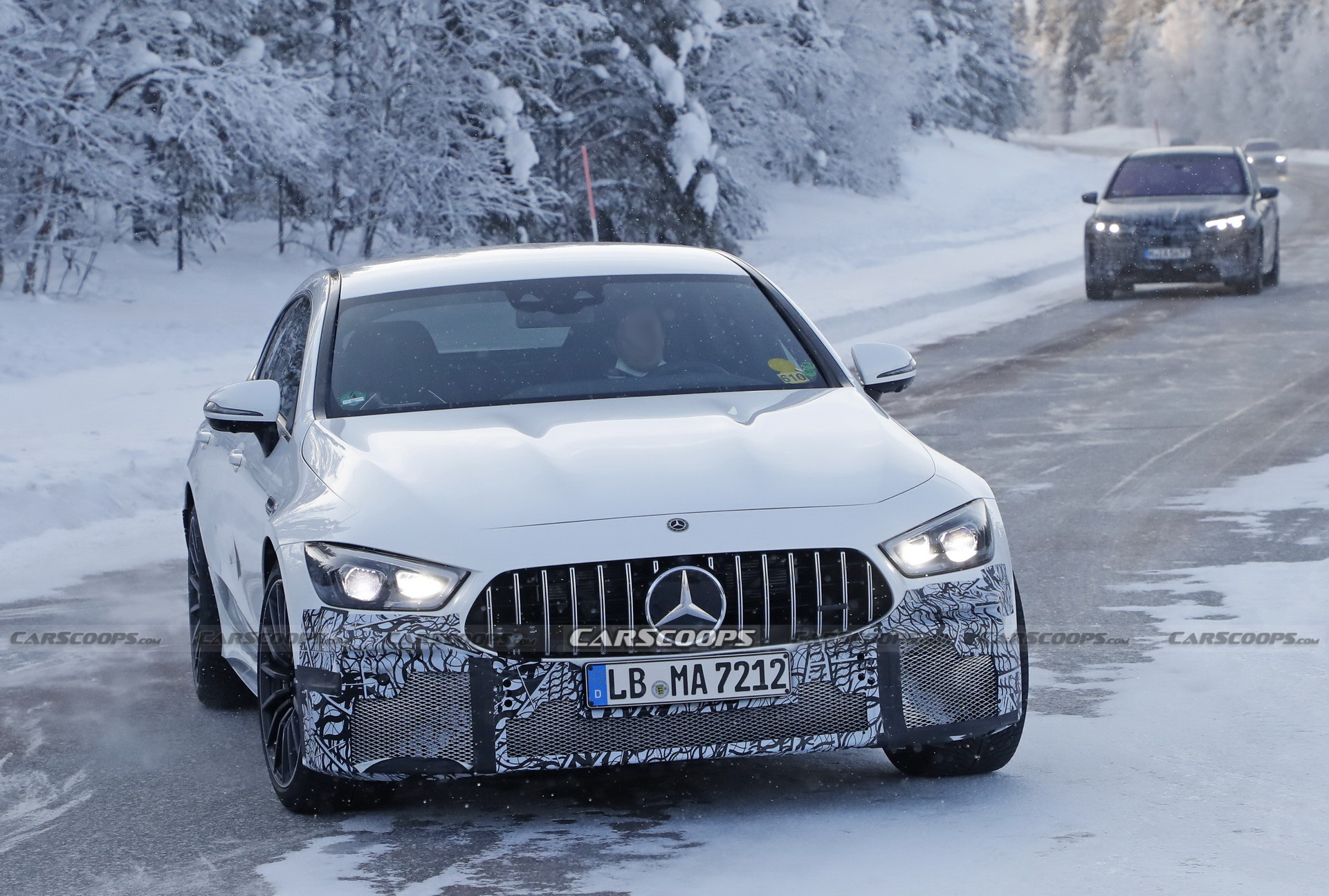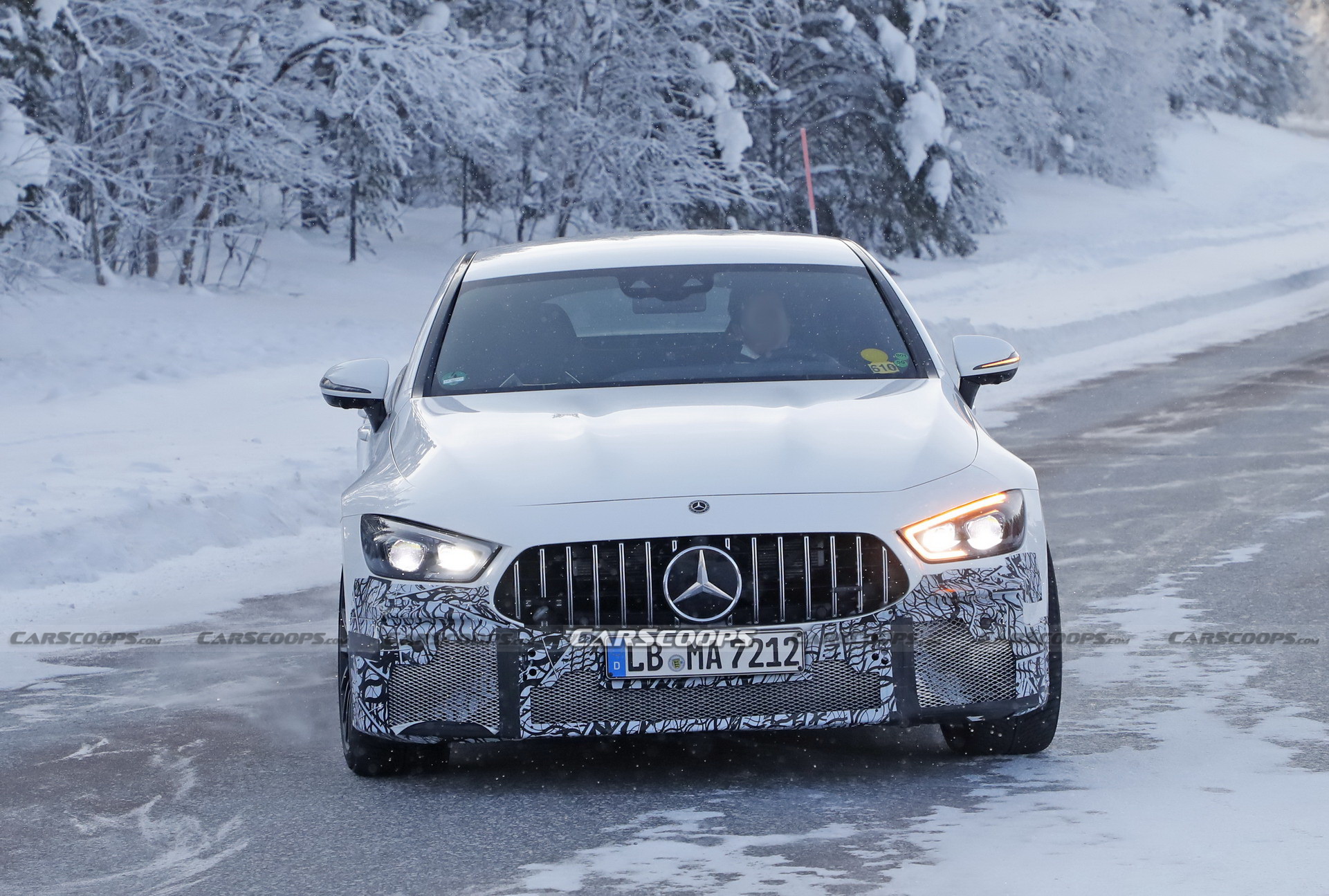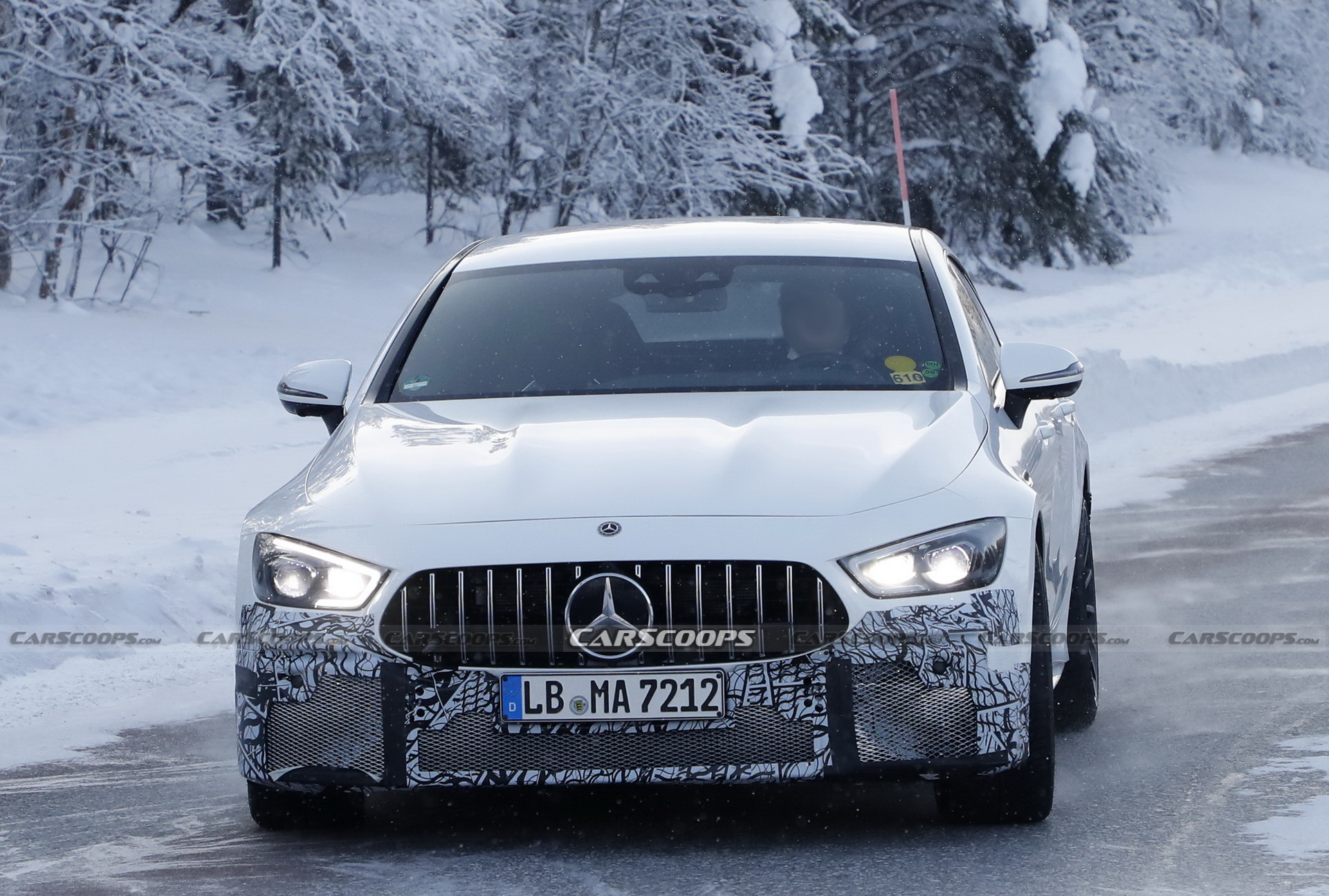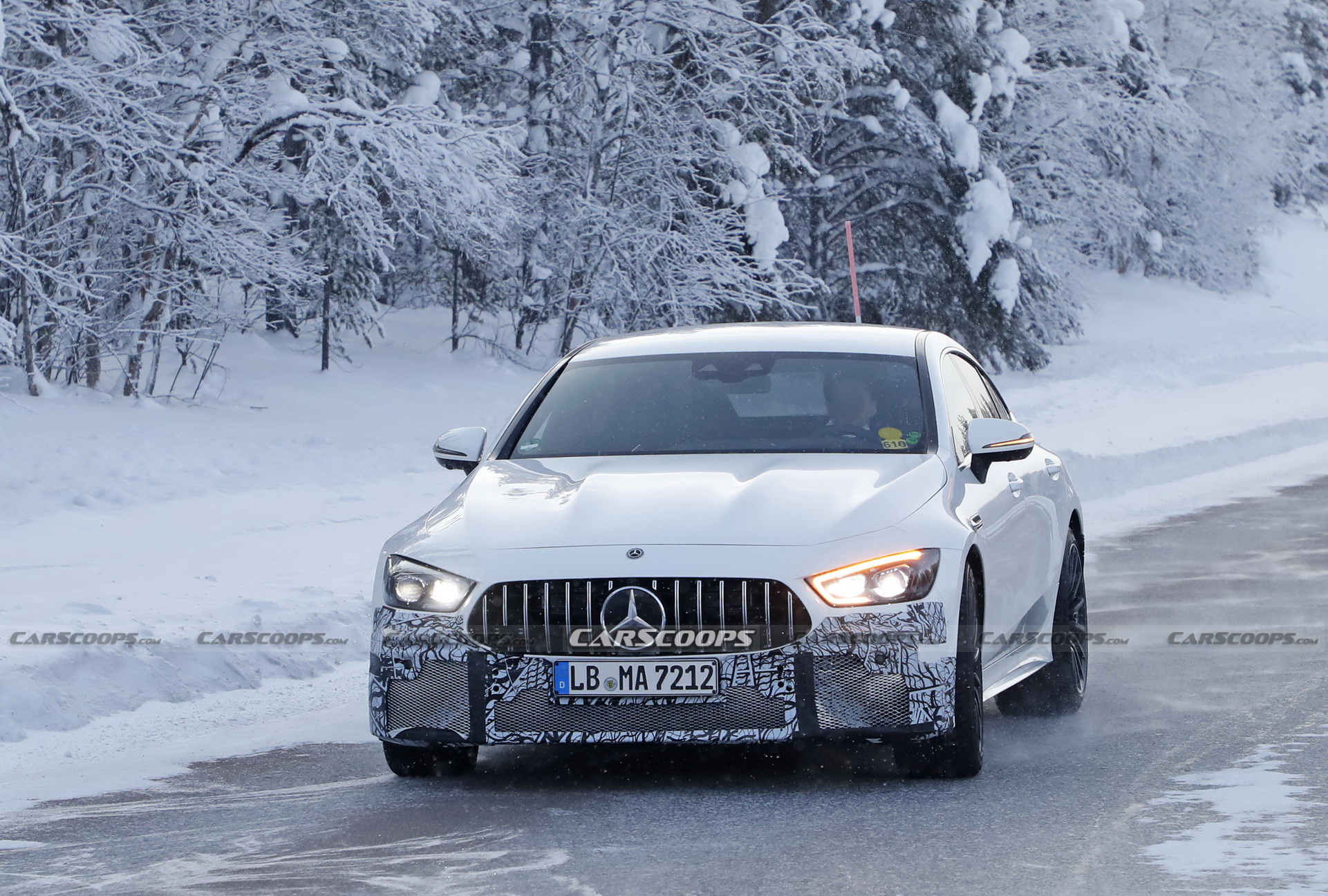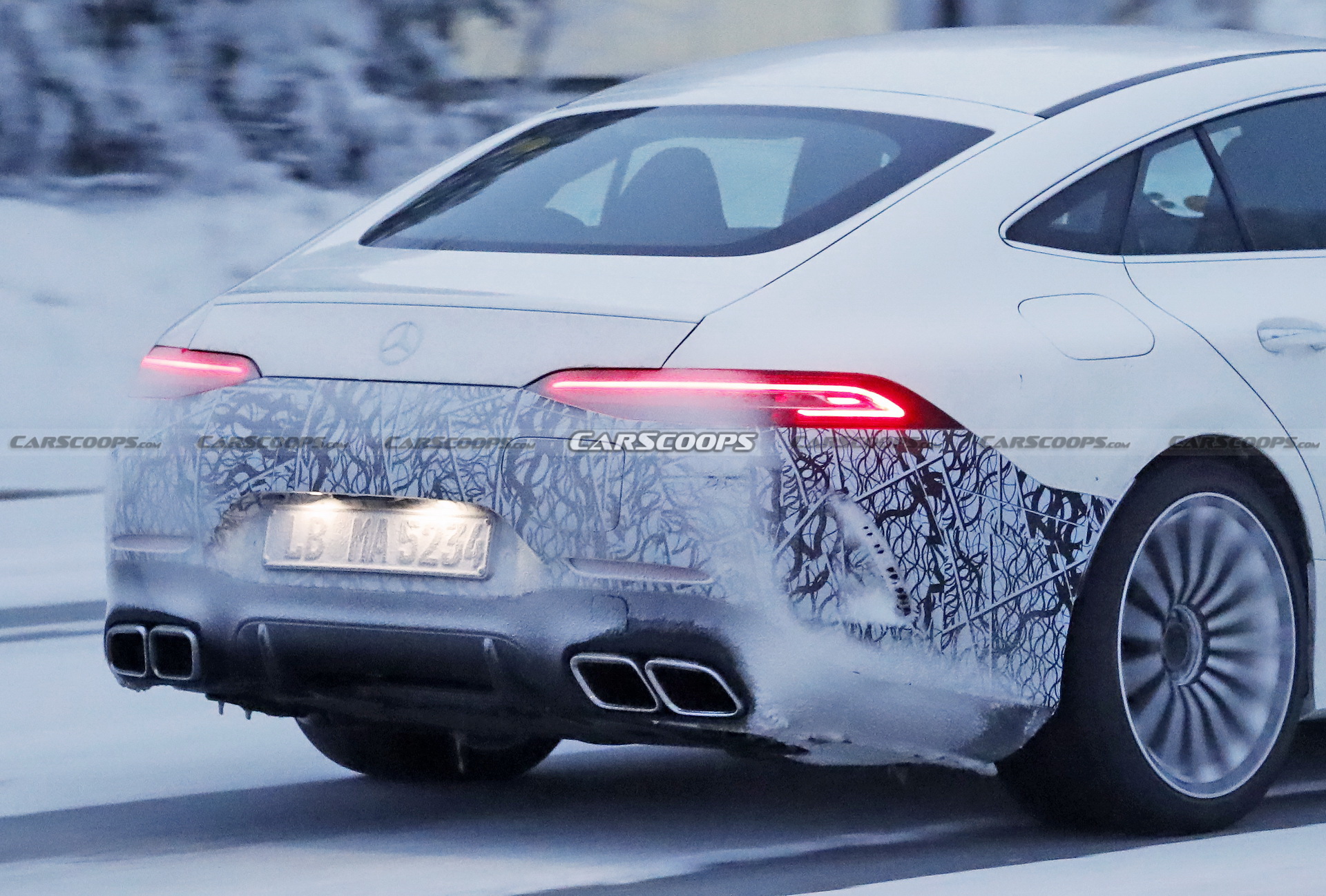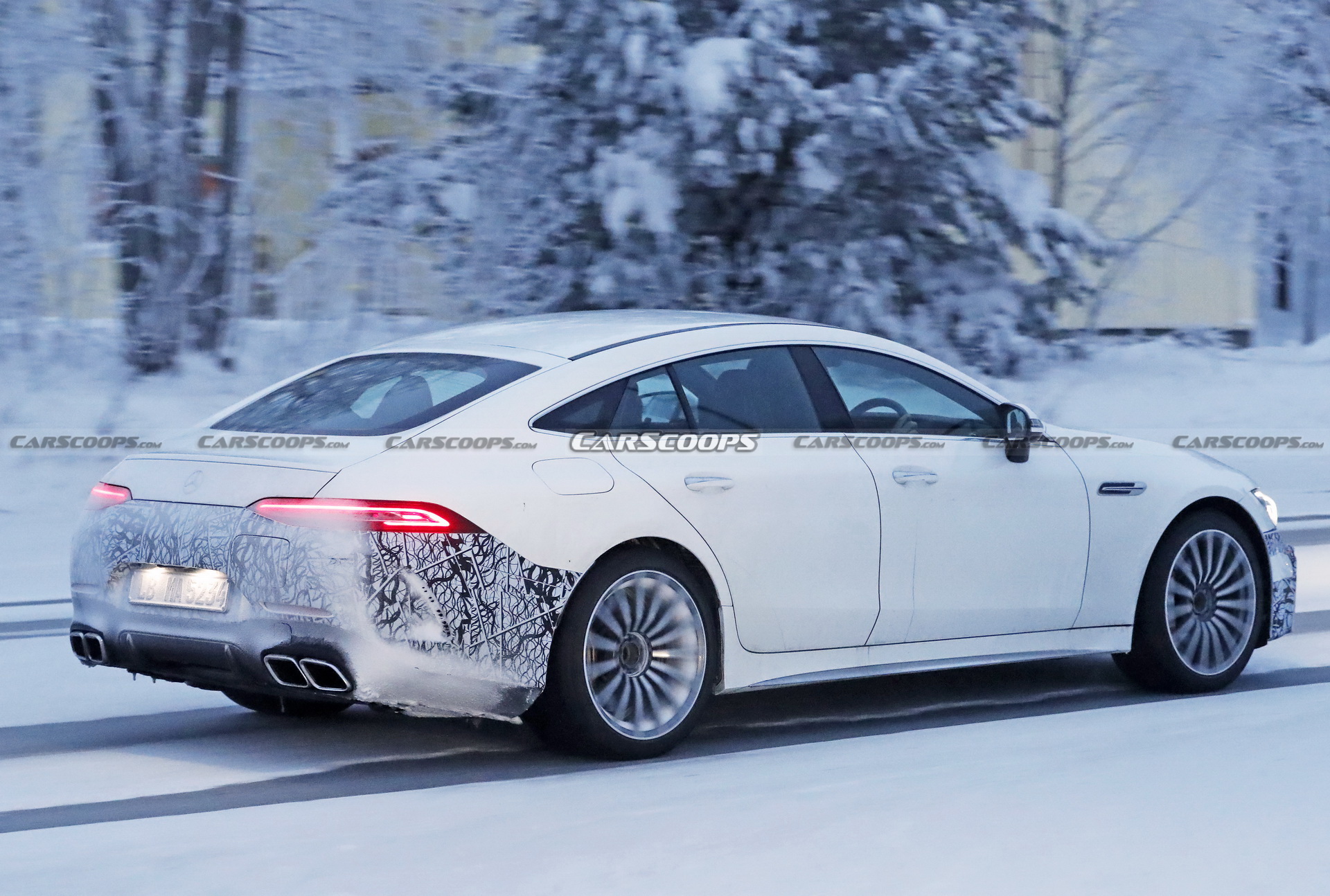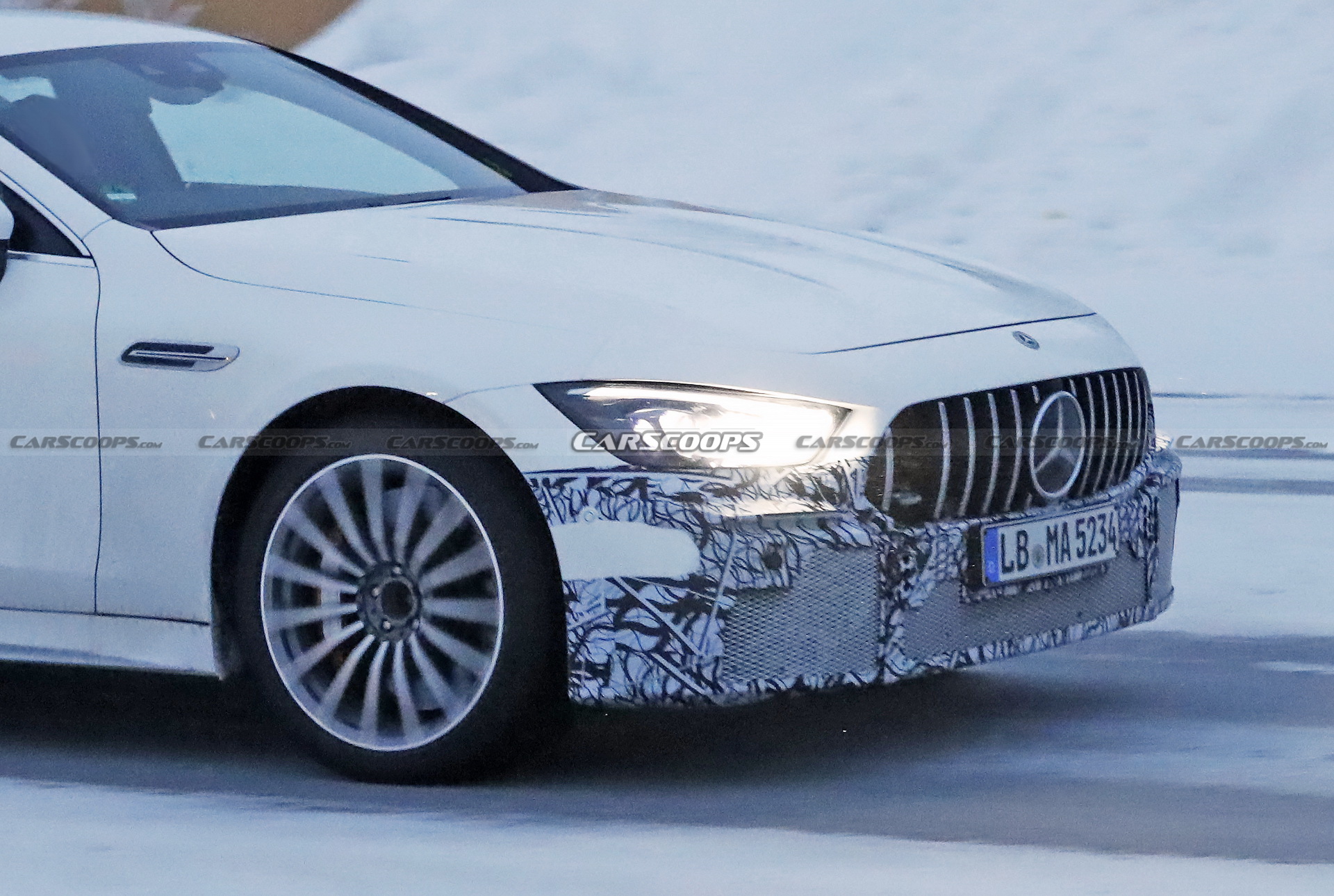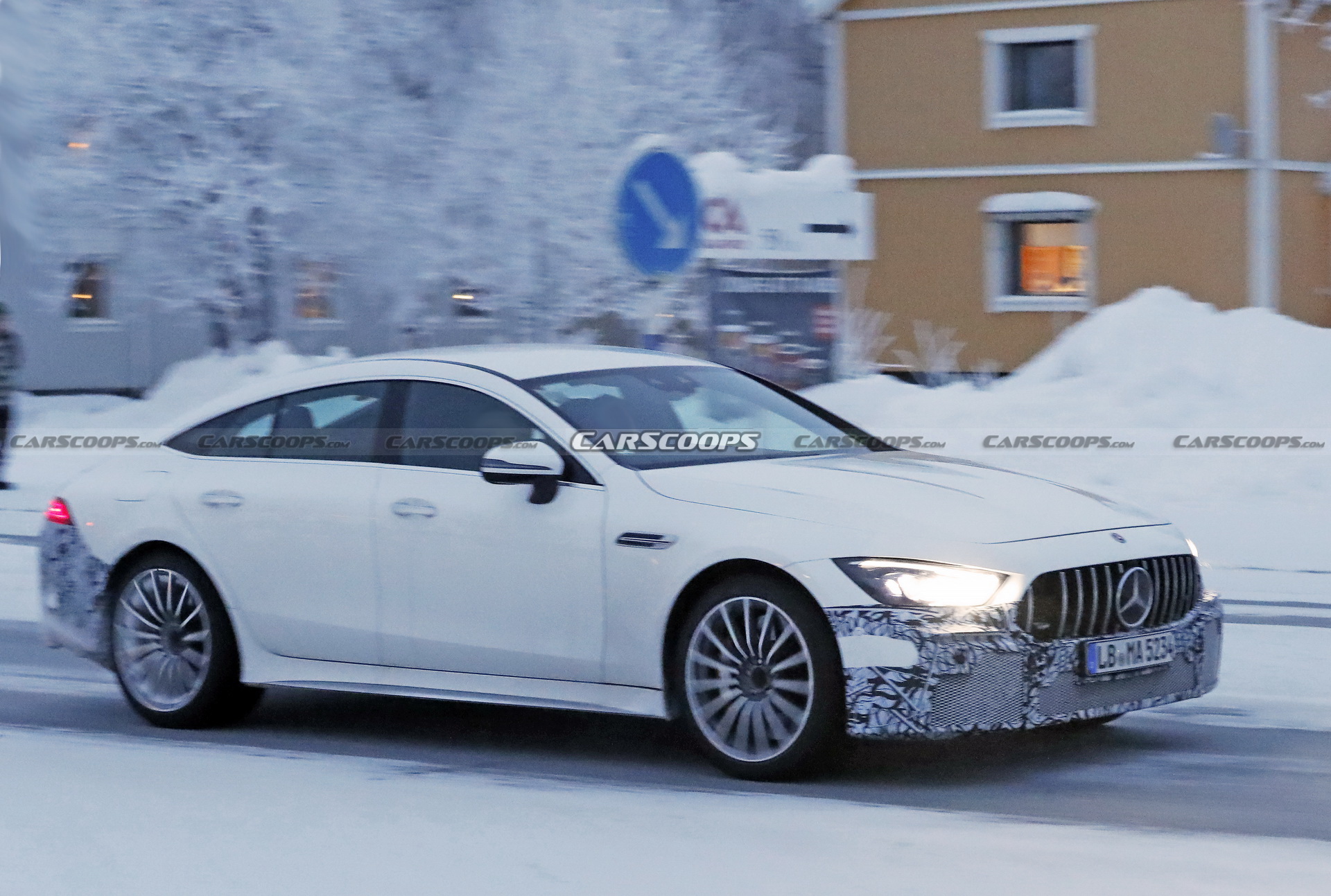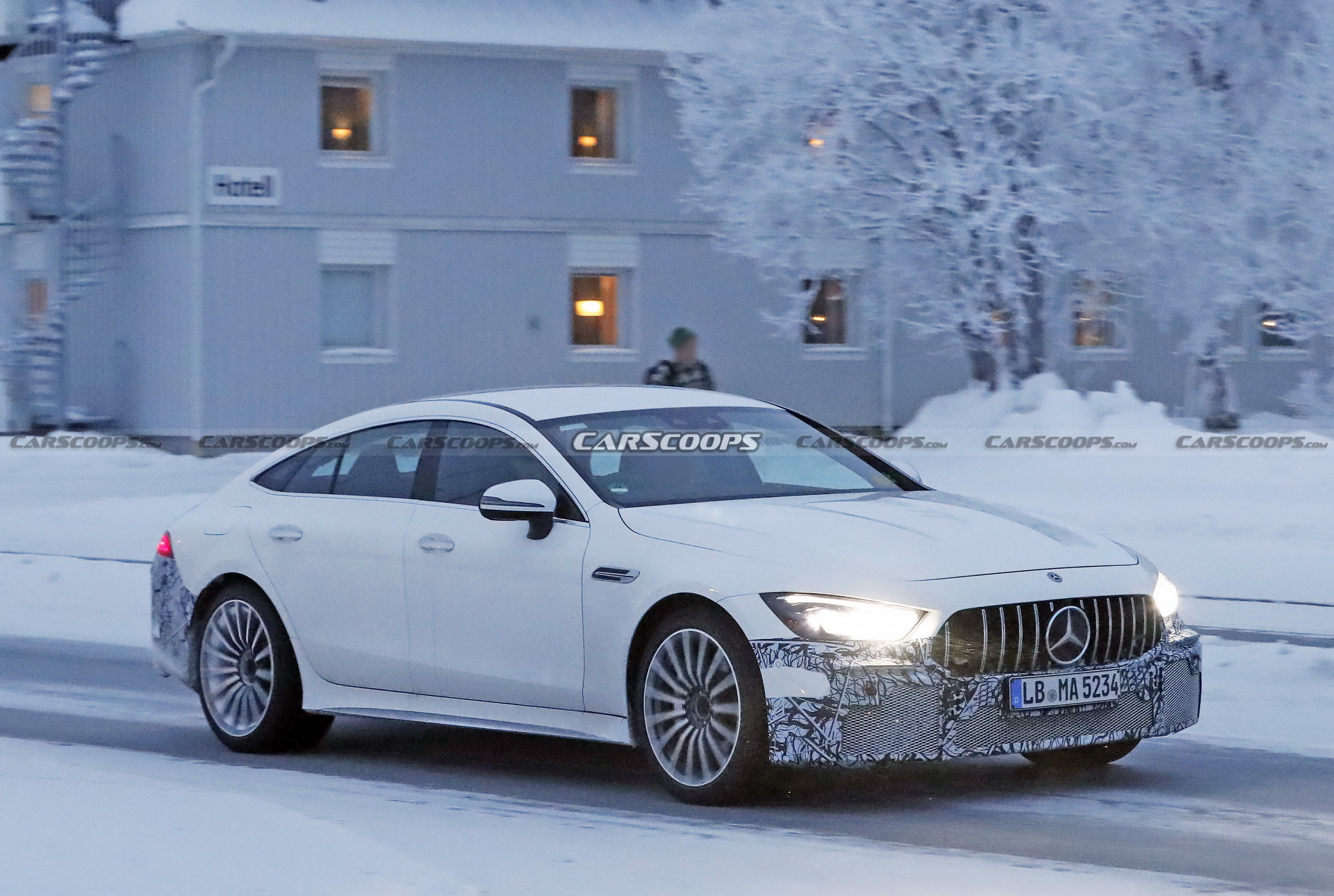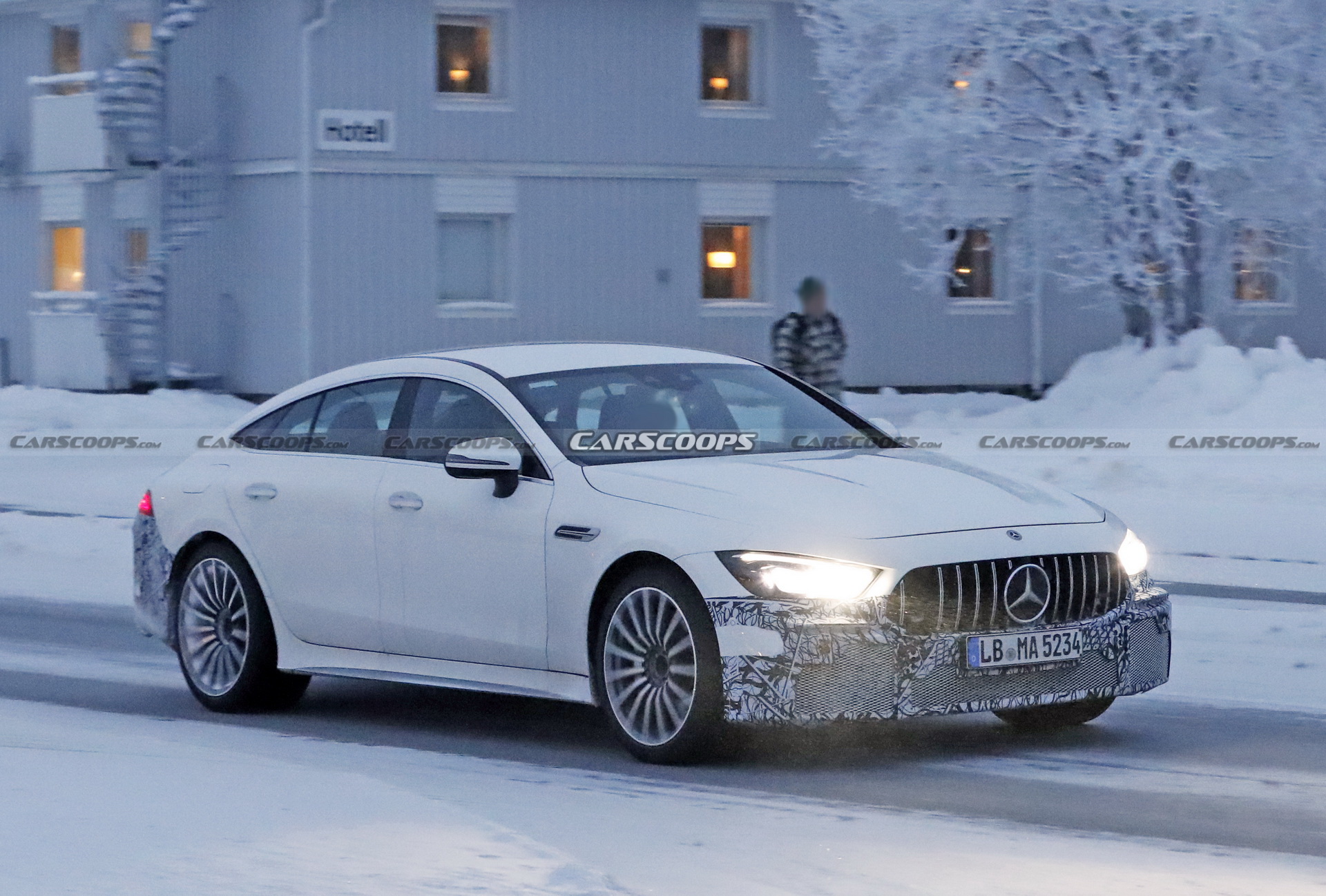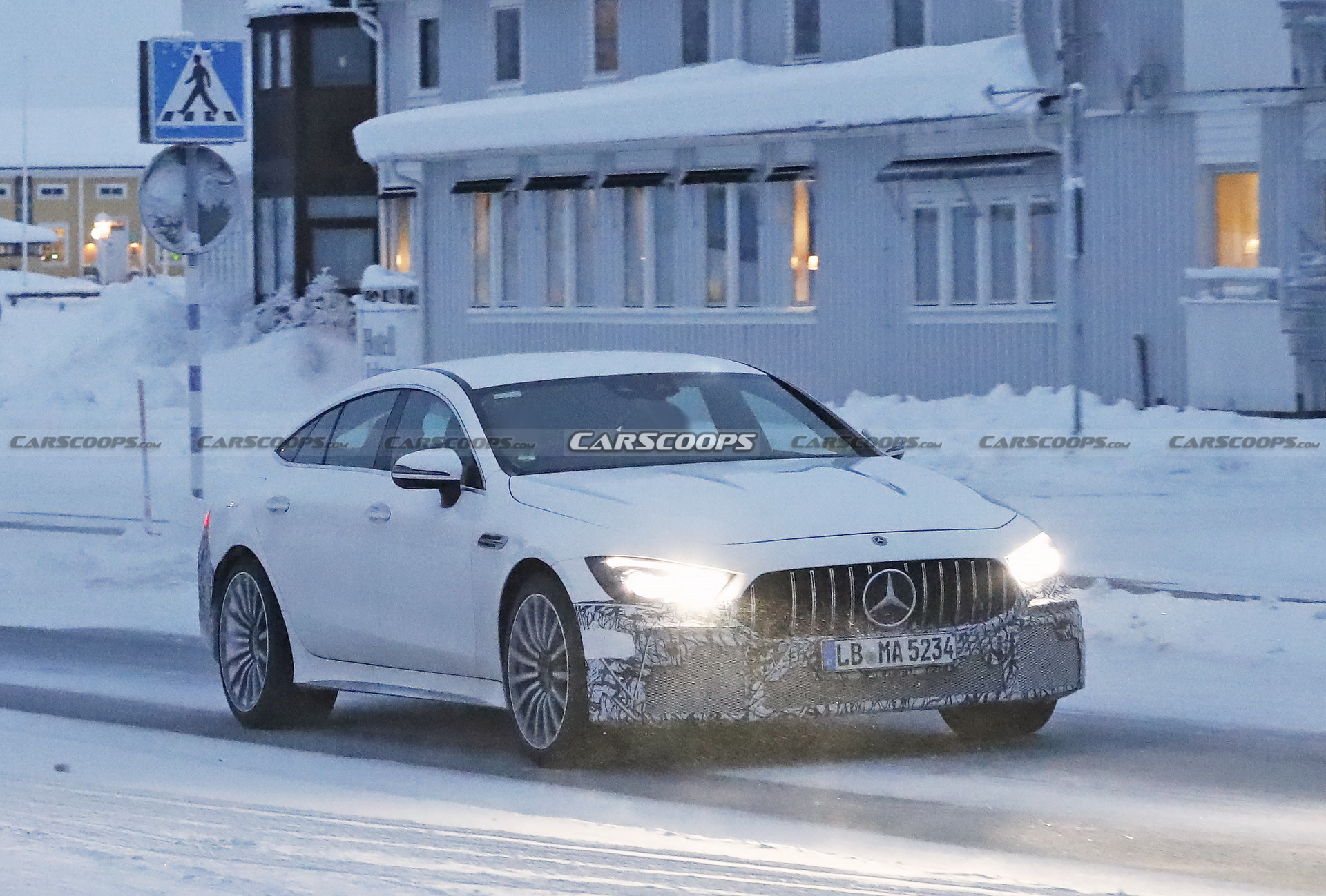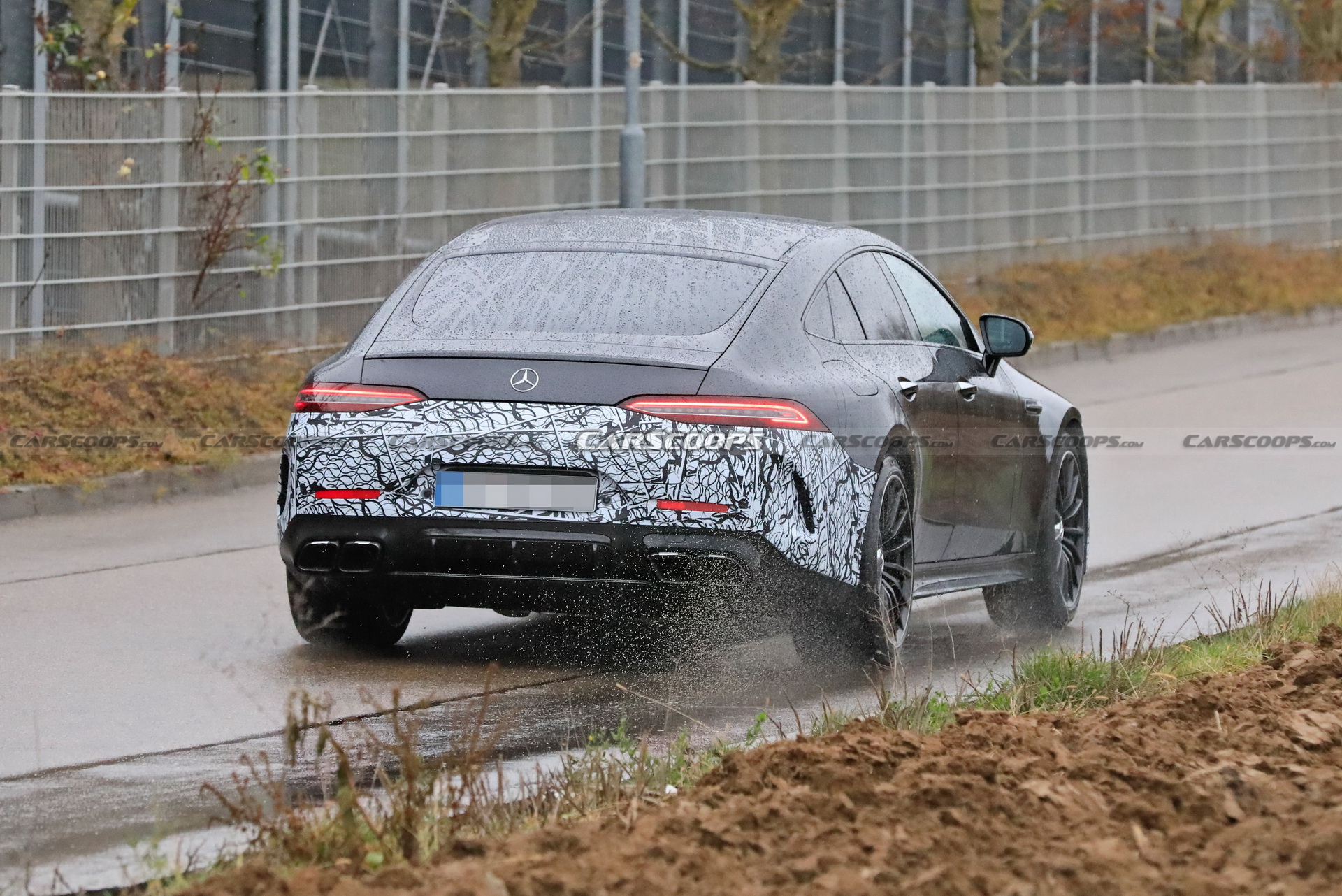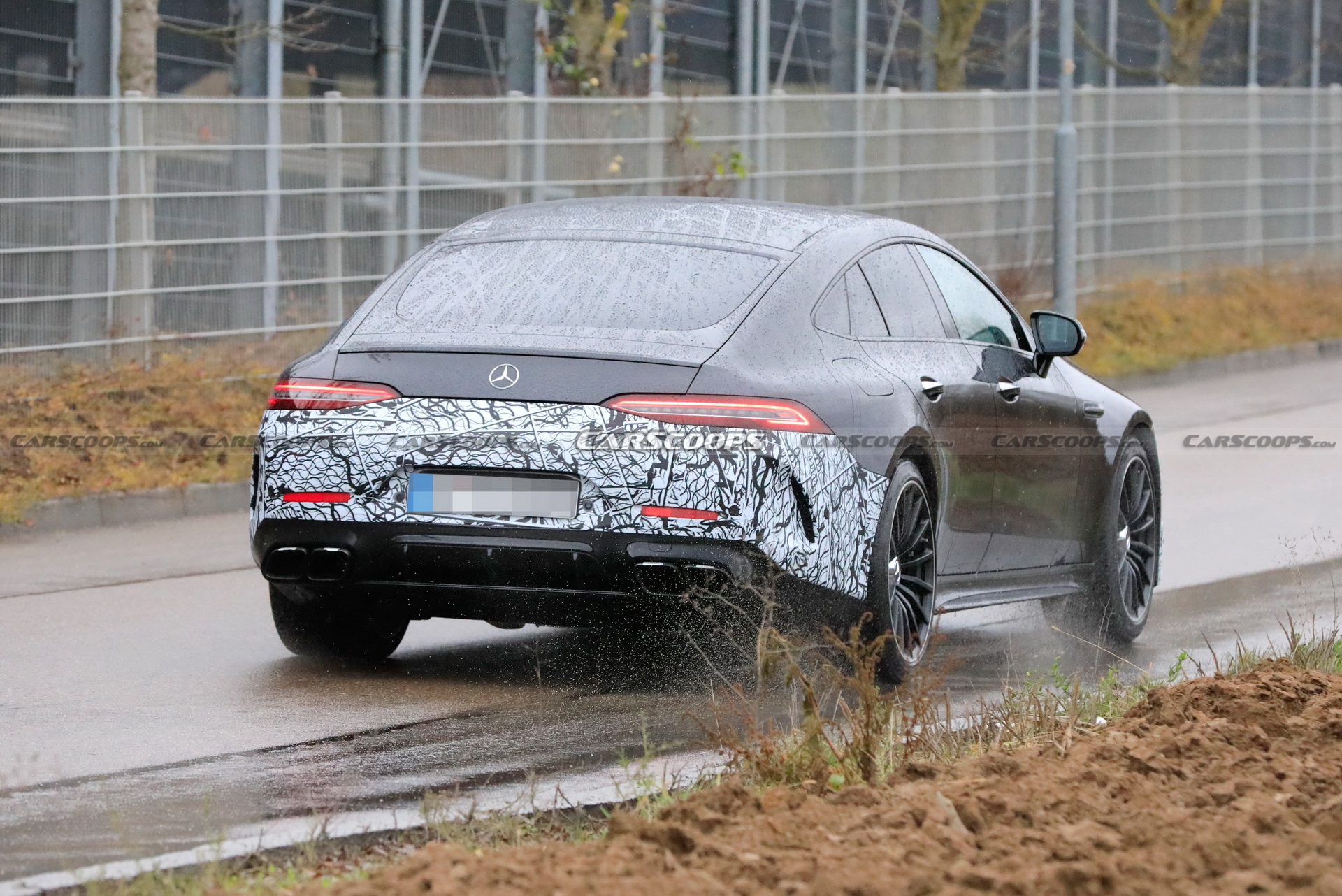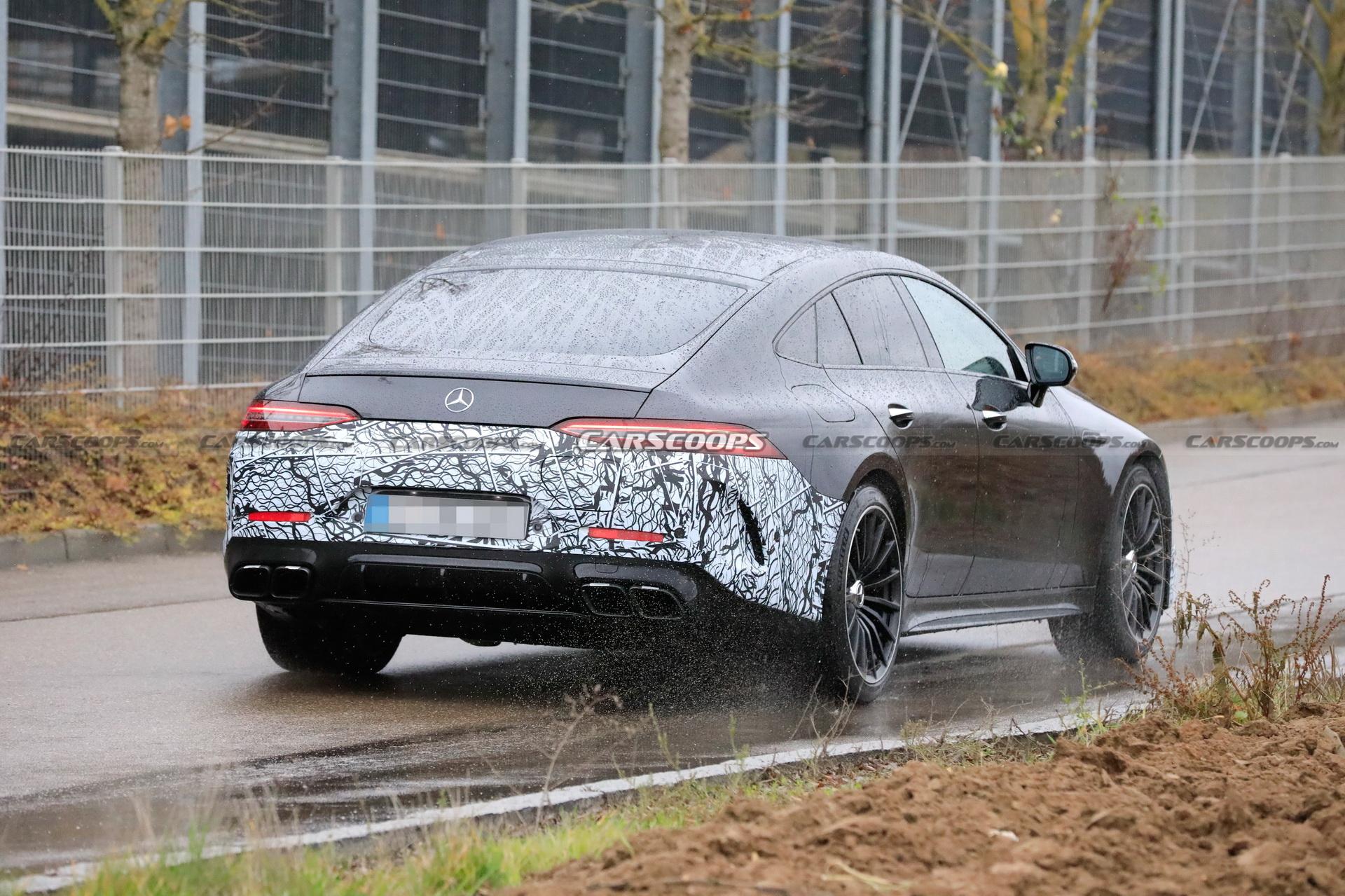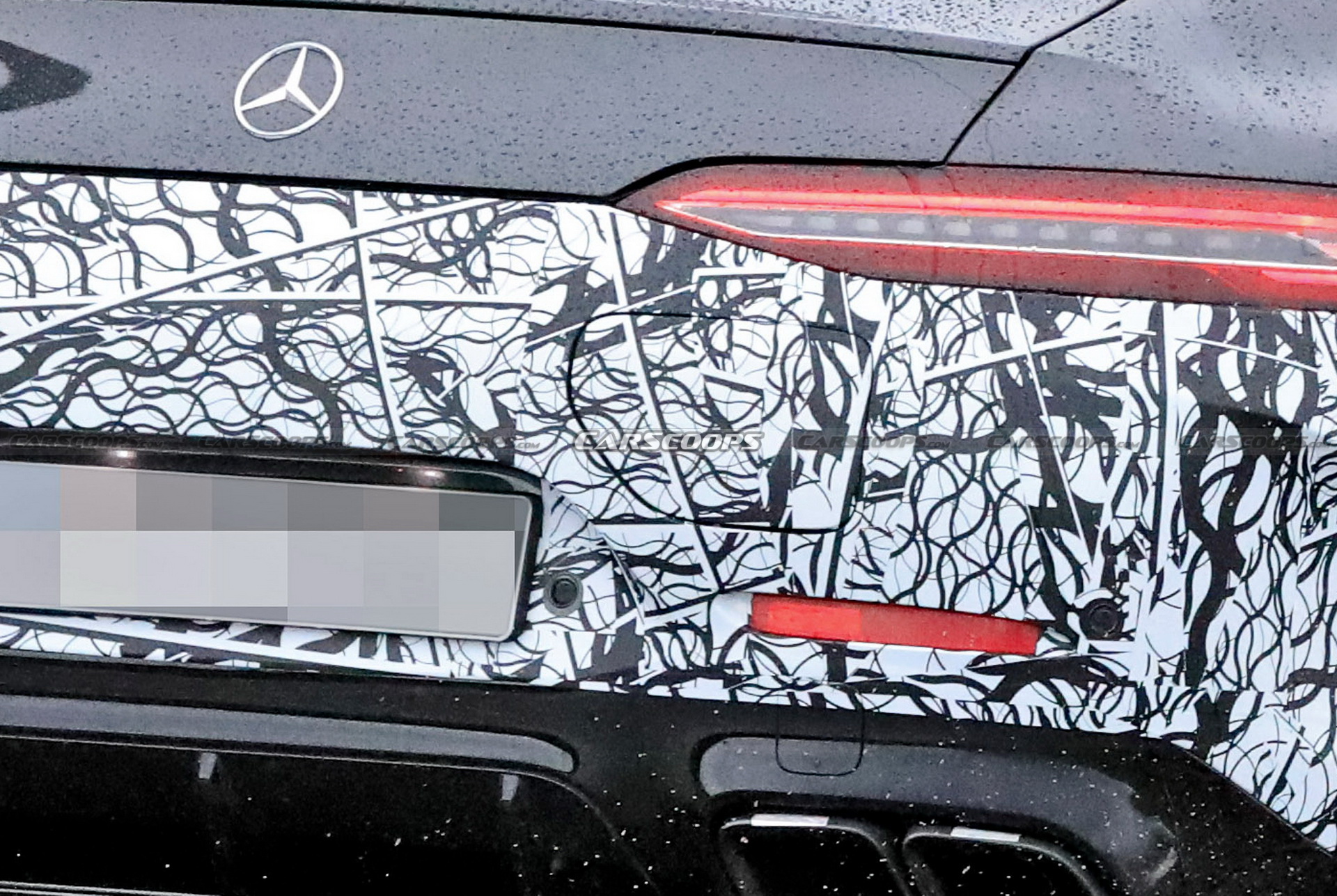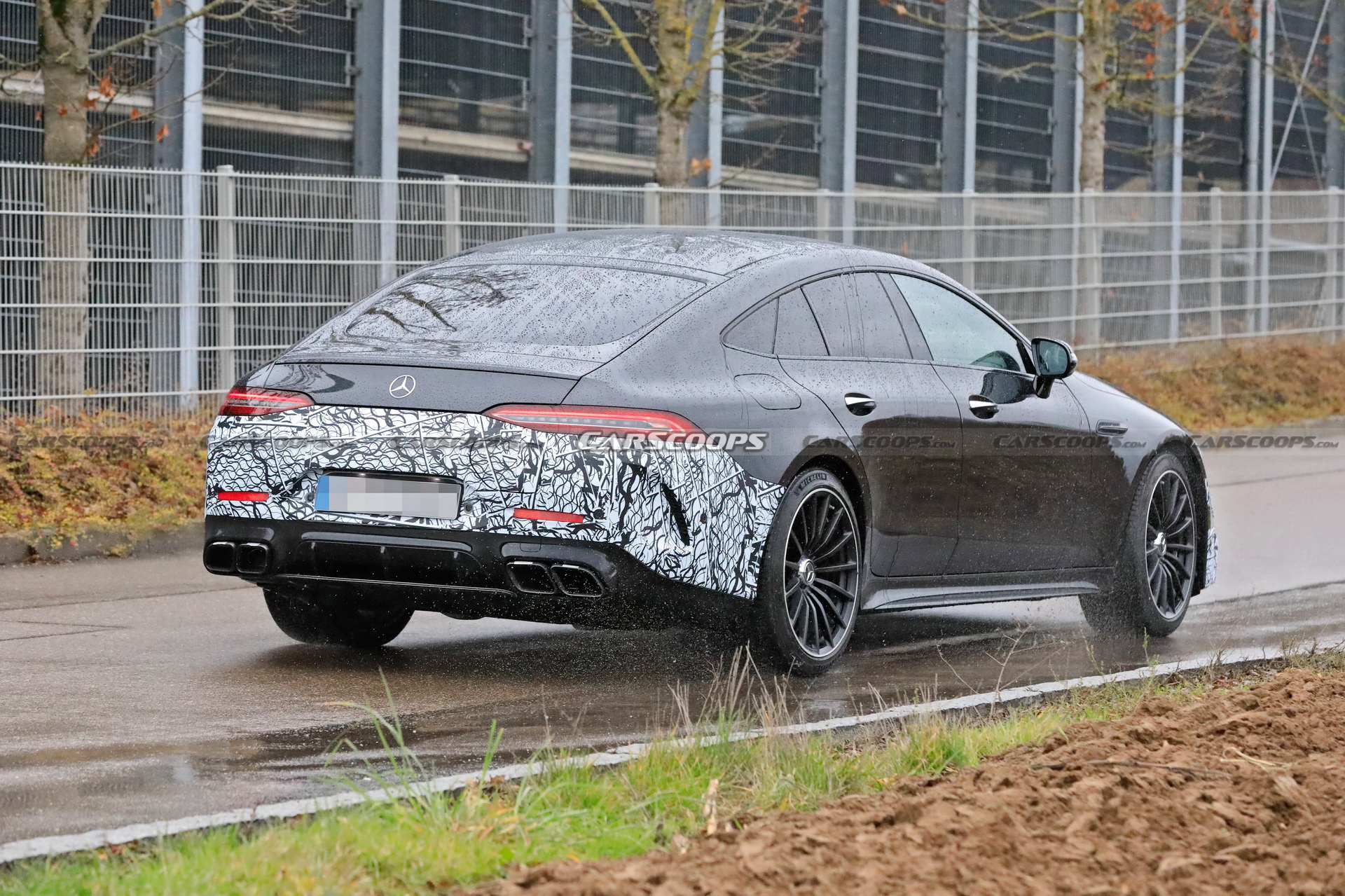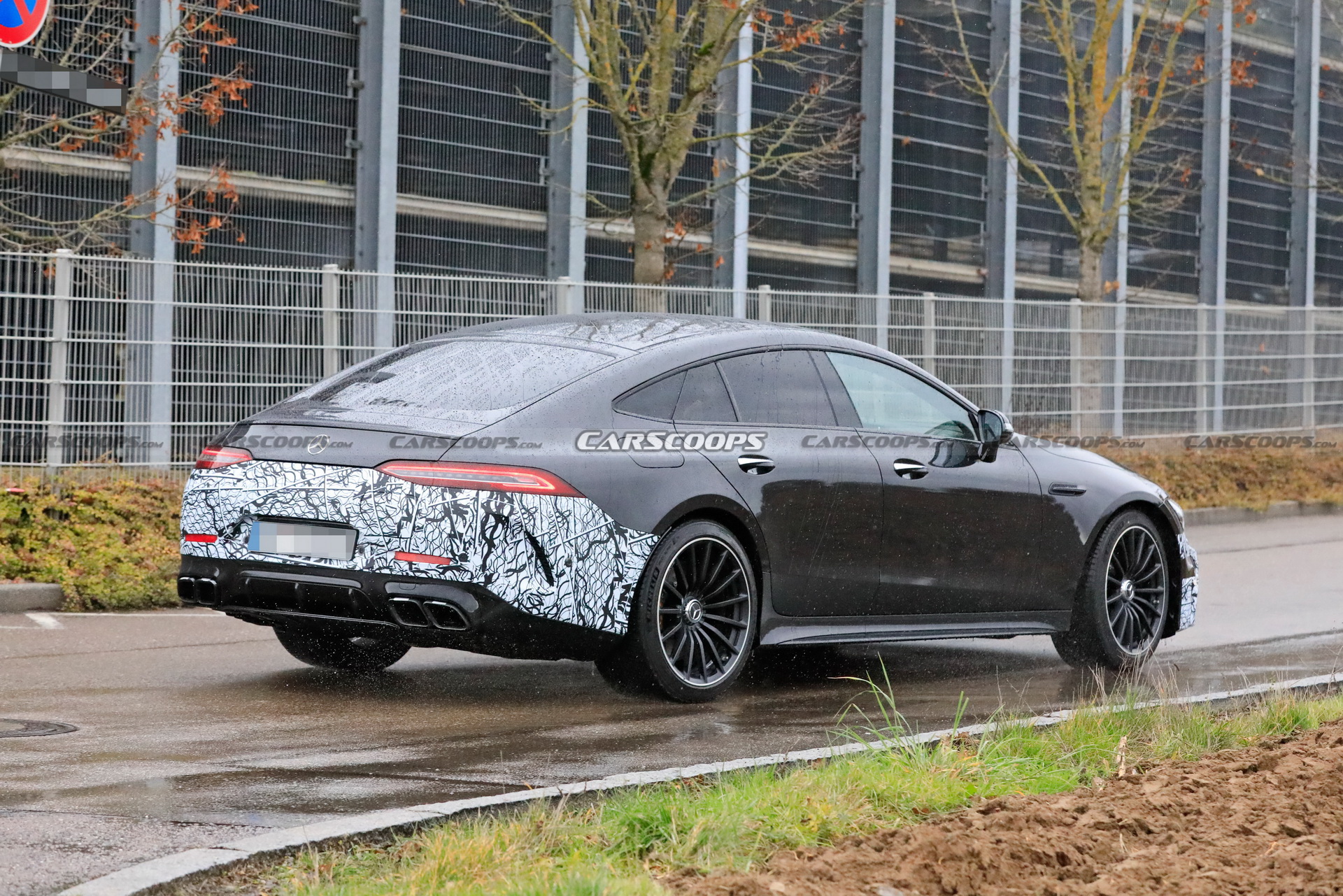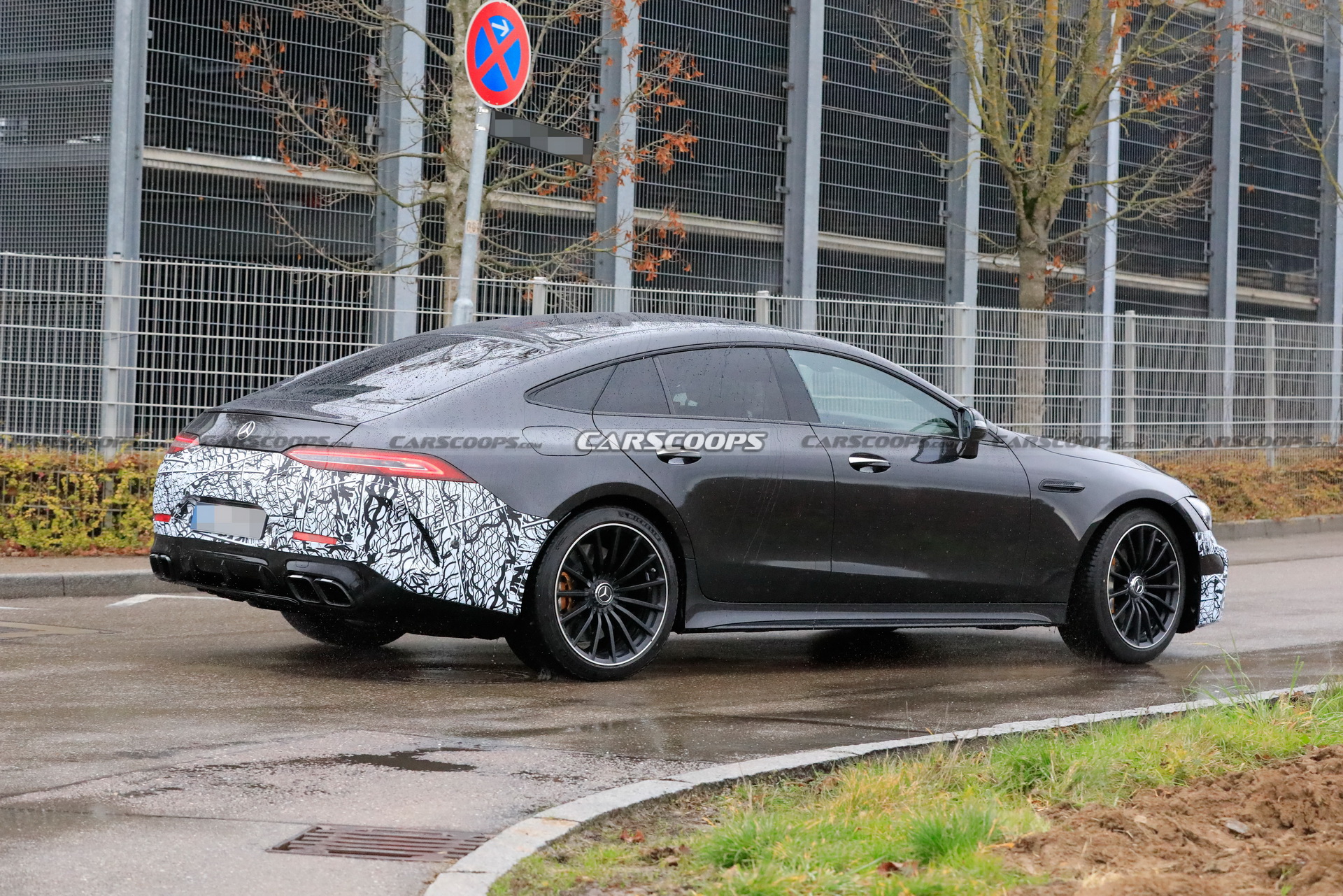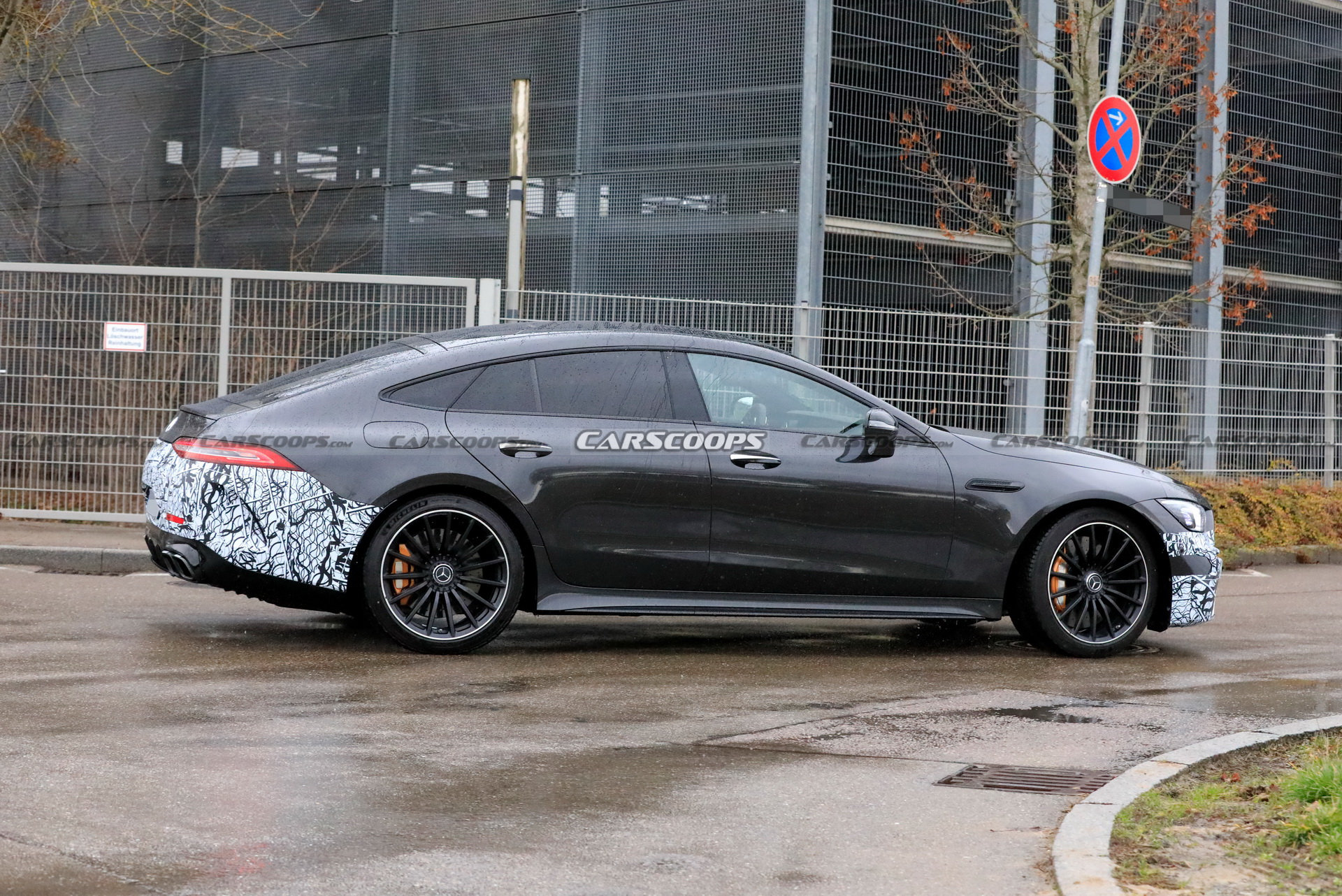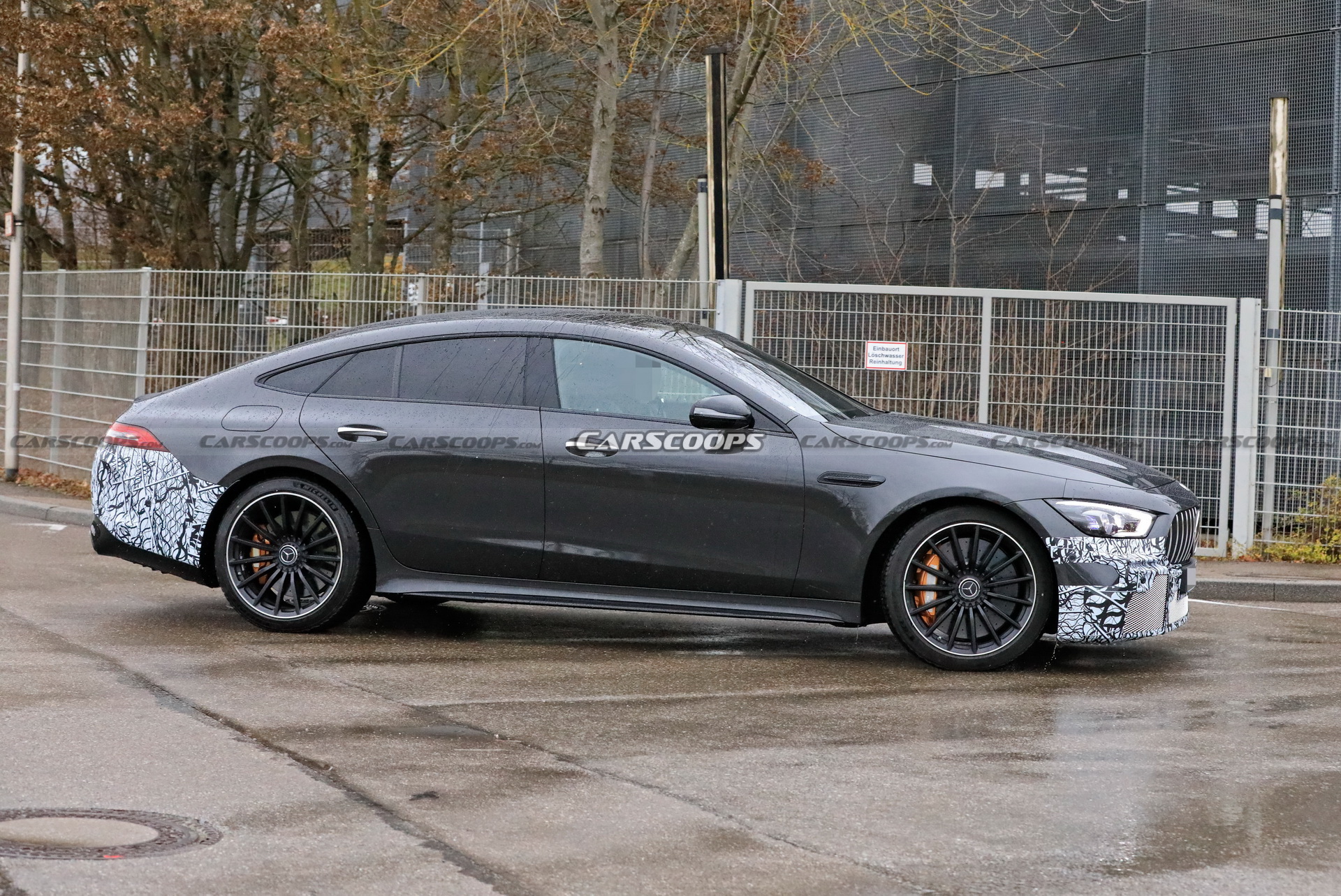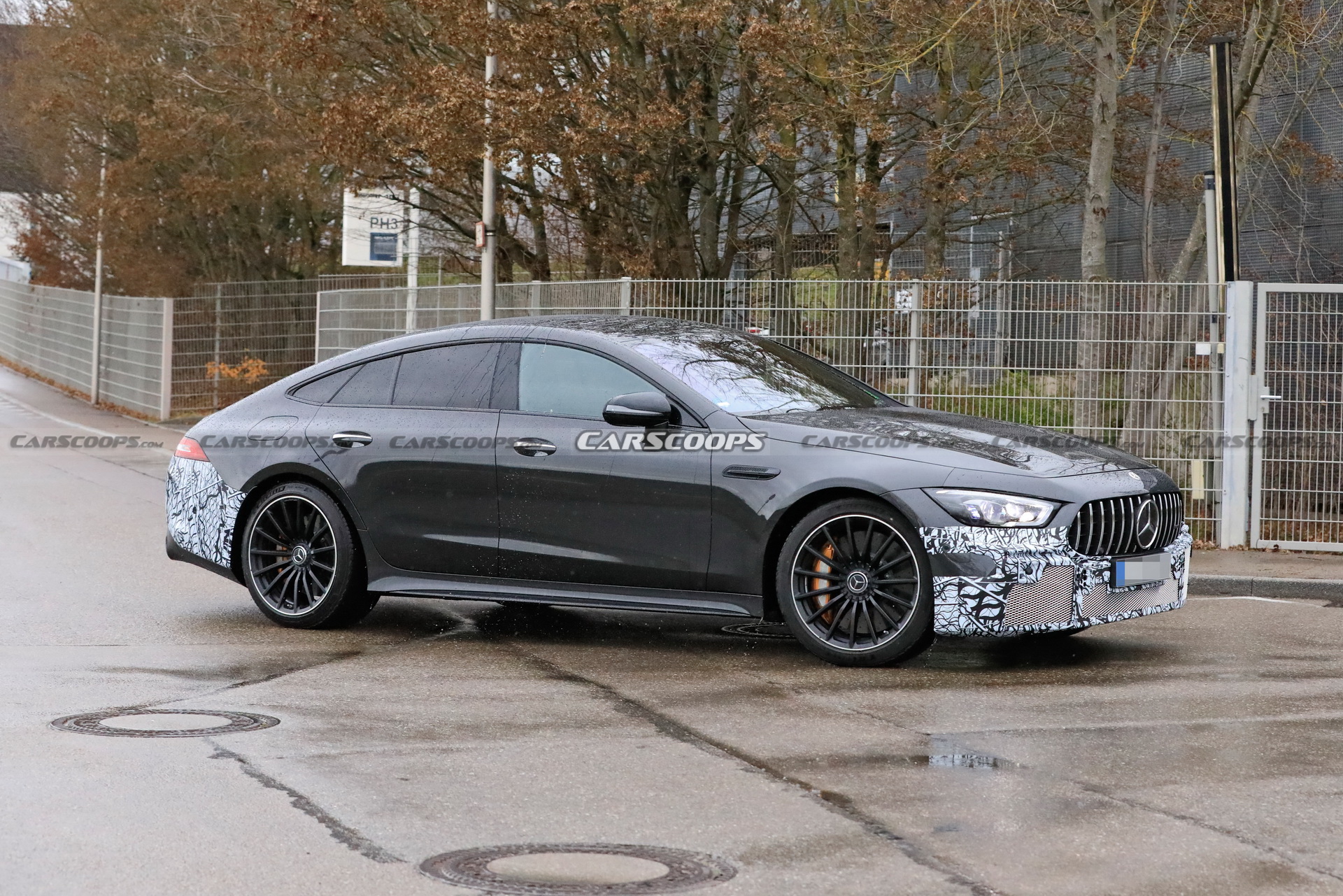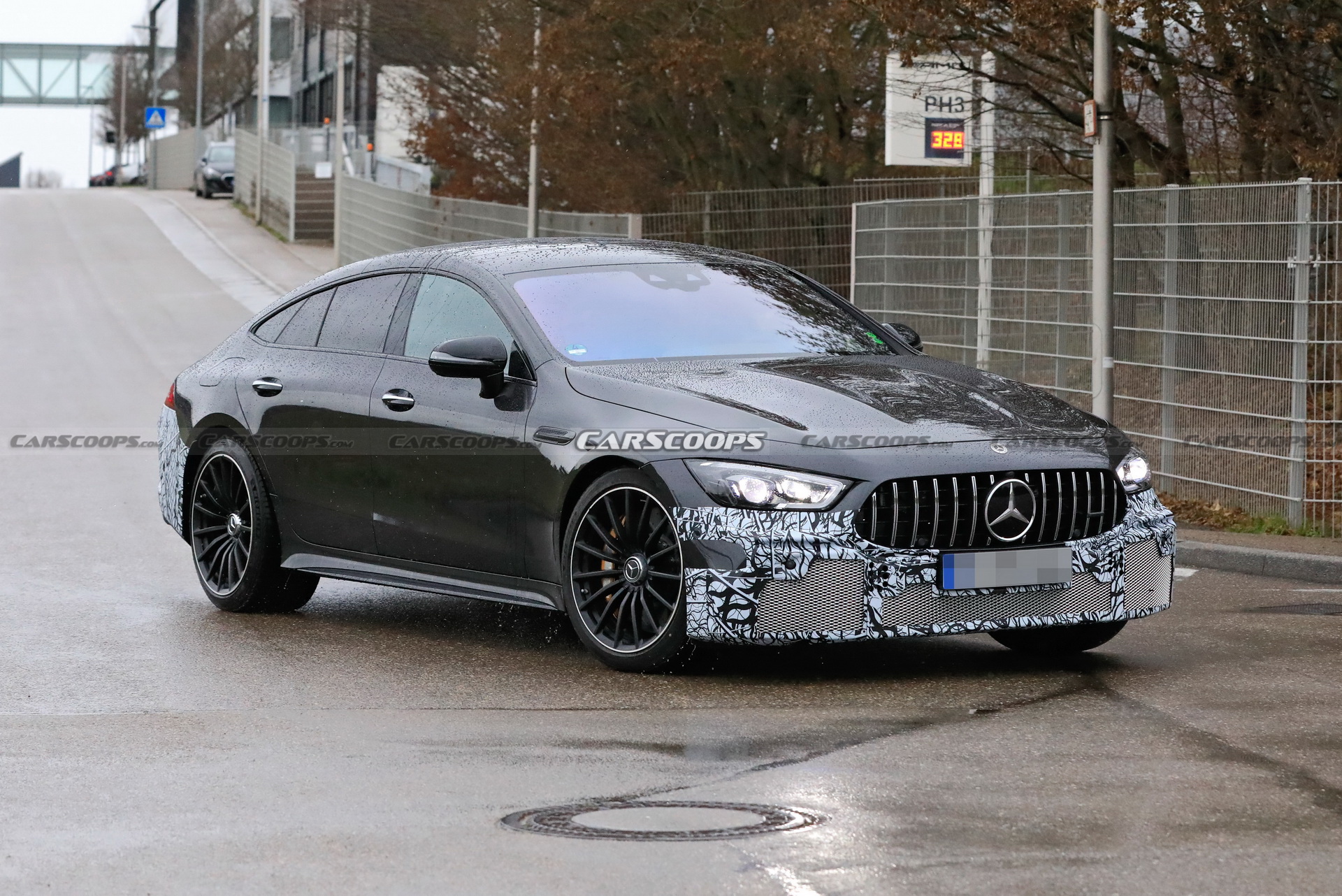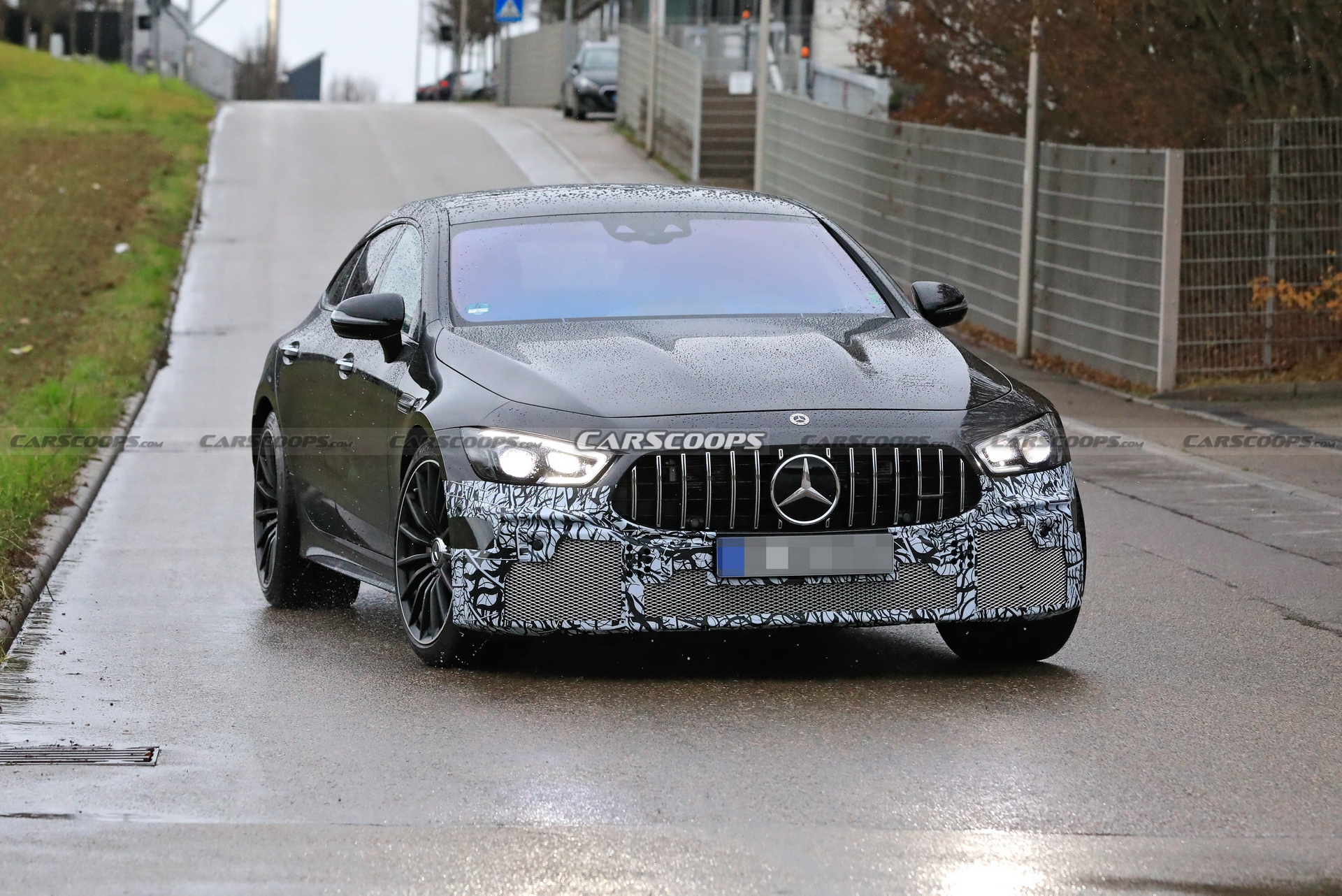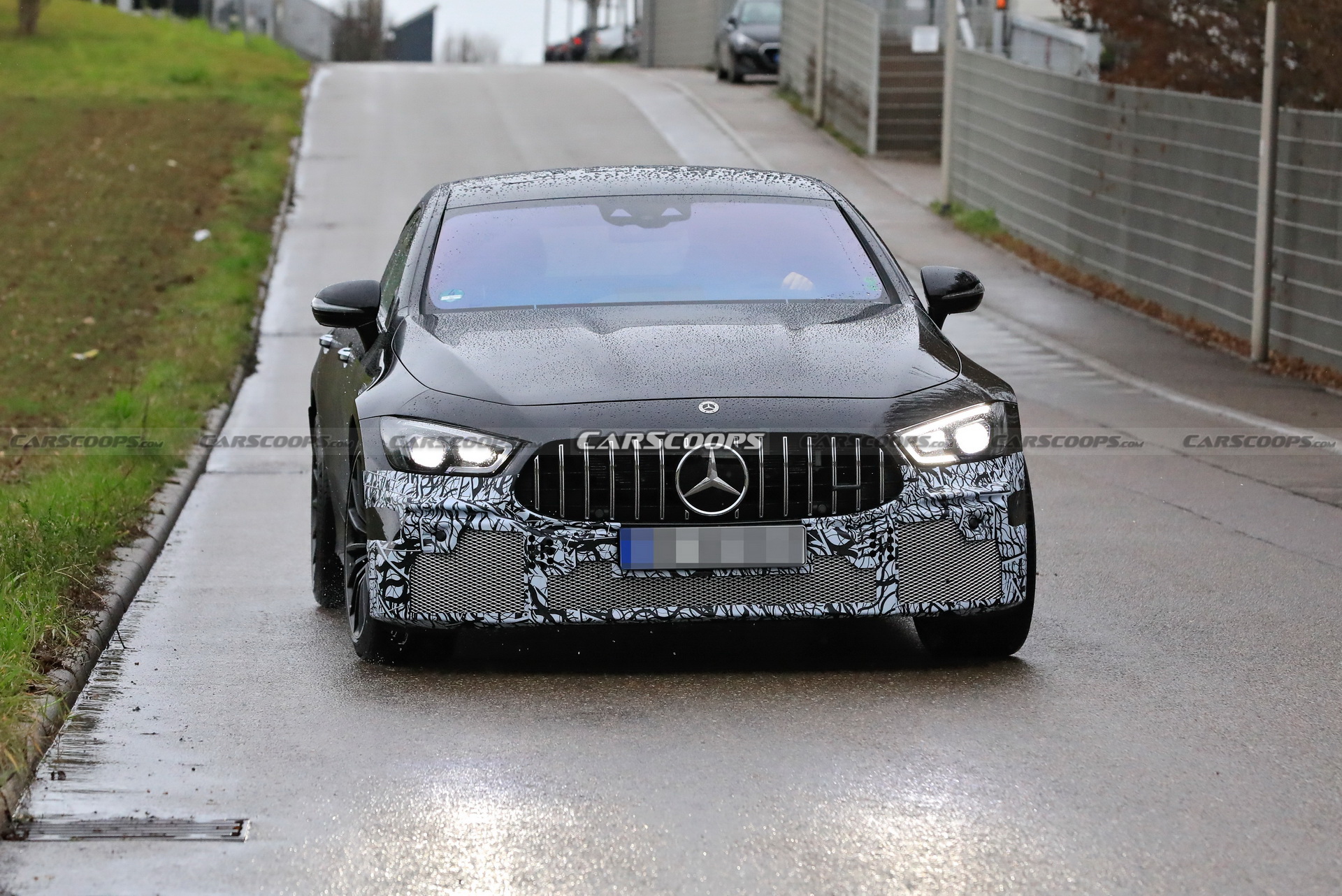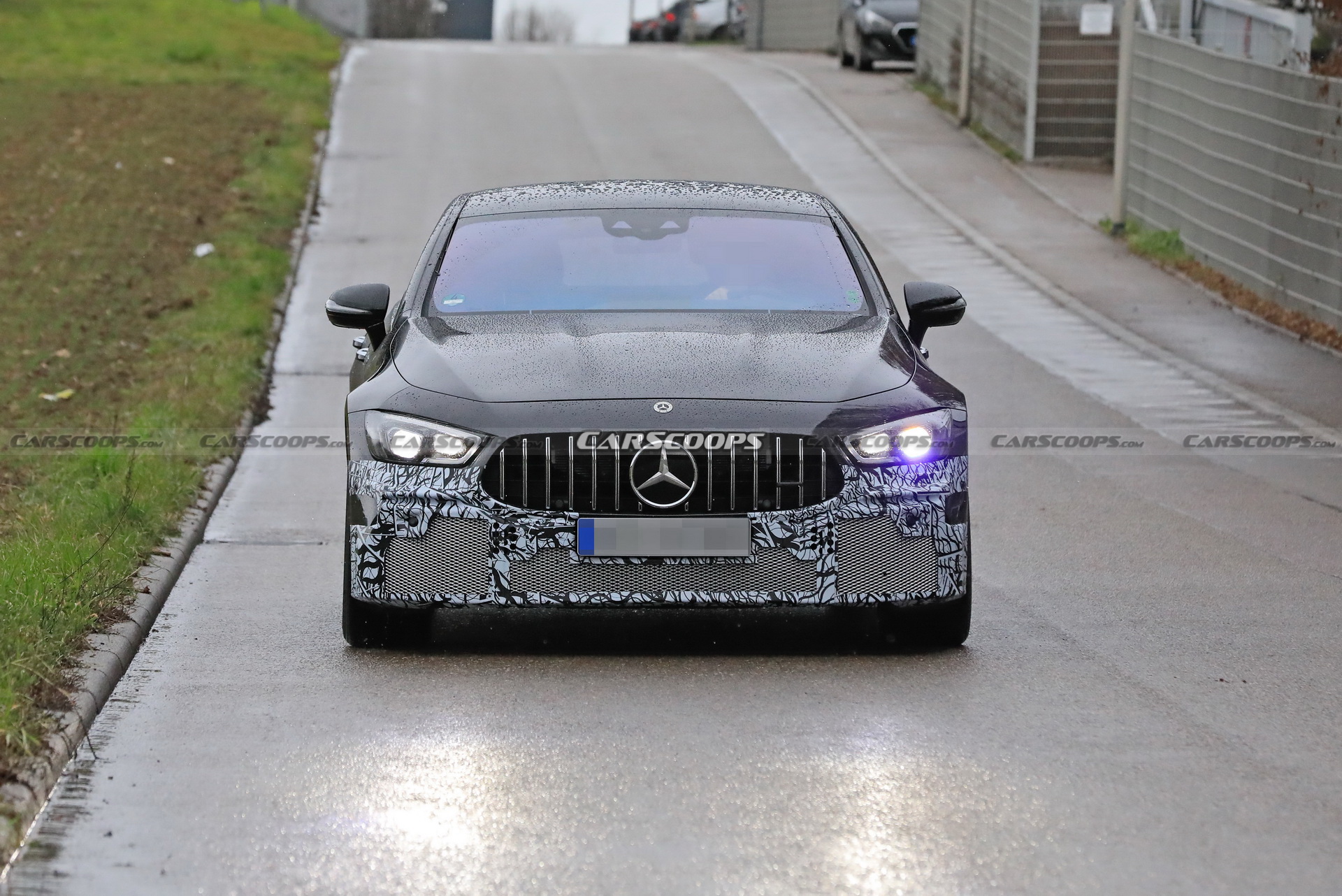While Mercedes-AMG’s most powerful production model to date wasn’t designed to achieve its maximum potential on snow covered roads, nevertheless, the German brand has to make sure it delivers the goods and works reliably everywhere through rigorous testing. While Stuttgart has yet to set an introduction date, it’s expected to be introduced by spring with sales to follow shortly after. [Updated 2/13/2021]
The time is near for Mercedes-AMG to reveal the most potent of the GT 4-Door Coupe, which will be fitted with a monstrous plug-in hybrid powertrain producing over 800 HP.
Our spies have been following closely the development of the vehicle for quite some time now and now it appears that AMG is finally close to wrapping it up and unleashing its beast to the world.
Read More: Mercedes-AMG Is Already Working On A Facelifted GT 63 S
We already know the core details of AMG’s new plug-in hybrid powertrain: under the bonnet, you’ll find the twin-turbo 4.0-liter V8 engine with 604 HP (612 PS) paired to a 201 HP electric motor and a battery pack for a combined output of up to 805 HP (816 PS).
The pictured test car also gives us a clear look at the charging port, which is located on the rear end of the vehicle and more specifically, under the right taillight. We still don’t know any details on the GT 73e’s battery pack capacity but expect it to feature a very usable EV-only driving range, covering around 31 miles (50 km) on electric power alone.
The new flagship version of the Mercedes-AMG GT 4-Door Coupe is going to be revealed as part of the model’s mid-life update, which will include subtle design revisions focused mostly on the front and rear bumpers, as well as an updated infotainment system and new trim and color options.
The upcoming Mercedes-AMG GT 73e is going to become a direct rival to models like Porsche’s plug-in Panamera Turbo S E-Hybrid, which offers 690 HP. Despite the weight penalty of the hybrid components, the new AMG GT 73e is expected to become one of the fastest-accelerating four-door coupes in the market, possibly dipping under the 3-second barrier for the 0-62 mph sprint.




